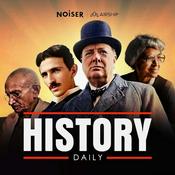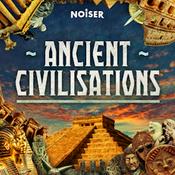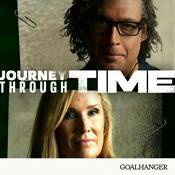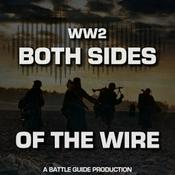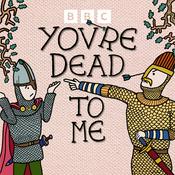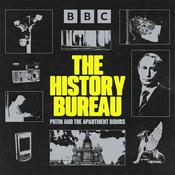575 Episoden
- In this episode of Gangland Wire, host Gary Jenkins, retired Kansas City Police Intelligence Unit detective, steps outside traditional Mafia territory and into a shadowy world just as dangerous—and just as fascinating: the international theft of ultra-rare automobiles. Gary is joined by author Stayton Bonner, former senior editor at Rolling Stone, and legendary car-recovery specialist Joe Ford, the real-life figure behind Bonner’s book The Million Dollar Car Detective.
At the center of the story is a breathtaking pre-World War II automobile—the Talbot-Lago Teardrop Coupé—once described as the most beautiful car in the world. Stolen from a Milwaukee industrialist’s garage in 2001, the car vanished into the international underground of elite collectors, forged paperwork, and high-stakes deception. Joe Ford explains how he became the go-to investigator when rare cars worth millions disappear—and why stolen vehicles are far harder to recover than stolen art. What follows is a years-long global hunt involving disgruntled mechanics, fabricated titles, shell corporations, Swiss intermediaries, and a billionaire buyer now locked in civil litigation.
Bonner adds rich historical context, tracing the car’s glamorous past—from European aristocracy to Hollywood royalty—and exposing how loneliness, obsession, and greed often surround these legendary machines. The conversation expands into other notorious cases, including the disappearance of the original James Bond Aston Martin from Goldfinger, and how wealthy collectors sometimes knowingly harbor stolen artifacts.
This episode is a true-crime story without guns or gangs—but filled with deception, betrayal, and the relentless pursuit of justice across borders.
If you love investigative work, high-end crime, and stories that feel like James Bond meets Gone in 60 Seconds, this one’s for you.
🔑 Key Topics Covered
The theft of a $7 million Talbot-Lago Teardrop Coupé
How stolen cars are laundered through forged provenance
Why rare automobiles are harder to recover than fine art
Civil vs. criminal liability in stolen property cases
The global black market for elite collector vehicles
The missing Goldfinger Aston Martin mystery
How billionaires and shell companies complicate recovery
📘 Featured Book
The Million Dollar Car Detective by Stayton Bonner
🎧 About the Guests
Stayton Bonner – Former Rolling Stone senior editor and investigative journalist
Joe Ford – International car-theft investigator specializing in ultra-rare vehicles
Hit me up on Venmo for a cup of coffee or a shot and a beer @ganglandwire
Click here to “buy me a cup of coffee”
Subscribe to the website for weekly notifications about updates and other Mob information.
To go to the store or make a donation or rent Ballot Theft: Burglary, Murder, Coverup, click here
To rent ‘Brothers against Brothers’ or ‘Gangland Wire,’ the documentaries click here.
To purchase one of my books, click here.
Tanscript
Gary jenkins: [00:00:00] well, hey, all your wire tapper’s. Good to be back here in studio of Gangland Wire. This is Gary Jenkins, retired Kansas City Police Intelligence unit detective. And I have a story today. It’s not particularly about the mafia, but it’s about a subject I’m really interested in.
That’s fast cars and rear cars. And, and I’m kind of a gearhead, as you all know, and love my motorcycles. But, uh, this is about some really cool cars and, and I have here. A couple of guys that, uh, particularly one Joe Ford who is a, a guy, a detective that goes out and finds rare stolen cars, which I think is just fascinating.
So I have Staton Bonner, who’s a former senior editor Rolling Stone. He’s written a book called The Million Dollar Detective, and that million dollar detective is Joe Ford. So welcome guys. Gary, thanks for having us. All right. So, uh, I, I guess let’s start off with, with Staton. Tell me a little bit about yourself.
You, you are a writer for Rolling Stone and, and written another book. I, I see. And, uh, so just tell us a little bit about yourself.
Stayton: Uh, yes, [00:01:00] sir. Former senior editor Rolling Stone Magazine wrote a book a few years ago, uh, Altru Stories. About a bare and knuckle boxer working to give his daughter a, a better life in New York City through these underground fights.
This story though, uh, is the most a amazing story I’ve come across, uh, in my years as a journalist. I don’t know if you’re a fan of James Bond gone in 60 seconds. Catch me if you can. Uh, but this story is right in line with that. You know, a lot of my work as a reporter editor is just looking for stories.
So I was scouring regional newspapers. When I came across this small story in a Milwaukee publication and it just immediately grabbed me, it jumped off. Uh, you know, in 2001, a $7 million stolen car was stolen in the middle of the night in Milwaukee from an industrialist private garage.
Three men in overalls cut security lines broke in. Absconded in the middle of the night with this very rare vehicle case closed with cold years later, a [00:02:00] detective Joe Ford gets a call from the French Alps, and a uh, disgruntled mechanic said he knew the whereabouts of this stolen car that authorities have been looking for around the world for years.
That really set off the chase that kicks off this book. It’s about, obviously it’s about a rare car, but it’s interesting because it gets into the veneer just underneath this high society world of people like Ralph Lauren and various heads of of industry. Buying and selling rare cars for many tens of millions of dollars.
There is a criminal enterprise underneath that, as you have with any rare art world dealing in fakes, forgeries stolen goods and all of that. And that’s when Joe Ford, the car detective comes in. You know, I talked with authorities police FBI, you know, there’s not a dedicated unit to recovering stolen cars as they have with stolen artwork.
So when a, when something a 10 million do dollar car gets taken. Uh, he, they said, they told me there’s one guy they [00:03:00] call and, uh, that’s Joe Ford. You don’t have to be a car person to love this book. The Million Dollar Car Detective just is really a good cat and mouse chase story. Um, and I’m, I’m thrilled to be here to talk about it.
Gary jenkins: Great. We all love cat and mouse chase story as I do anyhow. So Joe Ford, uh, tell us about yourself. How did you end up in this position to be the million dollar car theft detective?
Joe Ford: Accidentally. I started out as an architect in New Orleans, then went to law school, didn’t practice law, but I had a classic car dealership in Louisiana and in Florida.
And being involved in the car world, you learn about things. And then it was, uh, years later I ended up recovering a stolen acid martin for a guy and it was successful. And then, uh, got into a contract to recover a stolen $18 million Ferrari race car. And was successful and then heard about this from a French mechanic who is hadn’t been paid by somebody in Switzerland.
So he spills the [00:04:00] beans and, and gives me a clue. And I’ve been on this hunt for a car taken in 2001 and I’ve been litigating for over eight years now against an LLC owned by a billionaire set up just to buy this car outta Switzerland. And. My opinion is it was set up because he knew it was stolen, he knew it had paperwork issues and knew he would have to litigate to clear title.
And I’m now litigating to clear that title, but I intend to retrieve the car. And for me and my partner, I partnered up with the heirs of the original Milwaukee theft of victims. And, uh, we’re in court now against this
Gary jenkins: LLC. So, if I remember my, uh, property law from law school is you can’t, if you don’t have good title to something, you can’t pass it on to somebody else.
Any, any. Passing on is an illegal transaction, and whoever pays money for something with a bad title just by eats it, eats it, is my, if I remember right, [00:05:00] that correct.
Joe Ford: That that’s correct. And it, it goes down the chain. You can buy a stolen car from one guy, he can sell it to another, he can sell it to another.
Nobody acquires title because the thief didn’t have it, and each guy sues the prior guy to try to get his money back and the property gets returned to the victims.
Gary jenkins: That’s,
Joe Ford: that is the, the law of the world.
Gary jenkins: Interesting. I remember my law school, right? It’s been a few years. Yeah. But I remember that. Right.
Uh, so, you know, in this, this world, you know, we know about the jewel thefts. You know, the Marlboro Diamond never appeared back. The Chicago outfit guy stole this Marlboro diamond in, in London and mailed it to somebody. It never did reappear. Many times these paintings don’t ever reappear for years and years.
And we always, there’s always a speculation. There’s these, these, reclusive, super wealthy collectors or, uh, Arabian Saudi Arabian princes or something that will keep these things. Are any of those rumors true? Is that what happens with these cars? I mean, how do you hide a car? Especially one is what [00:06:00] this car that you’re looking for is a Talbot Lego.
Teardrop coop. Really distinctive, looking real. And I’ll have a picture of this up there, guys. Really distinctive looking car. So how, oh yeah, I see it up on your, uh, uh, up over your head there. So h how does this work? I guess a little bit about how this works.
Joe Ford: Lemme
Gary jenkins: just
Joe Ford: go ahead,
Stayton: lemme just give a little context.
So just for the big picture, Gary, you know, uh. Again for your listeners, I’m not sure, you know, rare cars it’s relatively smaller niche market in high-end collectibles, but it’s also, uh, the fastest rising sector. So you have, you know, folks who make a lot of money you know, they wanna diversify their assets.
It could be any number of things including, Picassos, Basquiats, uh, whatever. But what’s a lot more fun, when I interviewed all these people, is buying a super rare car. ’cause unlike something, a piece of art, you hang on the wall, you get to drive this thing.
Gary jenkins: Yeah.
Stayton: So the rare, you know, so the rare car market is really one of the [00:07:00] fastest growing markets.
It, it is really largely due to Ralph Lauren. He was a guy from the Bronx, just a working class kid. He grew up loving cars. So once he made money with Polo, uh, he started buying and collecting these old, Ferrari racers a lot of times that were just beat up, banged up. These things were raced in all sorts of.
Different competitions across Europe, just charred husks. Uh, but he would find them with his team and kind of restore them with the original items that they would find and make it as as true to period correct as possible. And then in the past decade or so as a market, the rare car market.
Has increased in value by more than 300%. It’s bypassed assets like, you know, collectible wines, jewelry, artwork, everything else. So there’s a whole hierarchy of cars within that at the basic level, a rare car. Two things. It’s obviously by definition there’s not many of them. A lot of times these are pre-World War [00:08:00] II vehicles that were custom made in Europe by the, the highest level of artisan, uh, in the world.
And then number two, a lot of times they, they signify a very special. Innovation in technology or design or just something that makes it special? Obviously, Ferrari, if it raced, if it won something in a competition, if it was a car owned by Steve McQueen, right from Bullet. Yeah, something like that. If it’s a very rare special car, that’s where it gets to this next level.
I mean, I’m sure a lot of your readers, our listeners have a. You know, a, a rare muscle car that their dad or uncle left around, they kind of tinker on in the garage or whatever. And that, that is a layer. But this is a whole nother one where these, these become worth tens of millions of dollars. And just like any rare asset if you have a lot of value and it’s hard to find paperwork.
For instance to verify these things, you have to do a lot of, of digging, but it also opens up an opportunity for a lot of fraud and theft. And that’s [00:09:00] really what has happened in the rare car market. And that’s, that’s where they call someone like Joe. Joe, I don’t know if you want to add anything else to that.
Joe Ford: Yeah. It doesn’t happen often because every thief soon learns you can’t sell the stolen item. Yeah. So then the only pathway to try to legitimize a sale is to try to fabricate paperwork. Or create a paper trail to somehow explain how you came to possess this stolen car. And in this instance, the paperwork was all fabricated, including forged notary stamps, forged signatures, a forged paperwork trail as if it, the car went from this guy to that guy.
And it’s just, but what? You just debunk all that and uncover the lies that are trying to paper over a
Gary jenkins: theft. So, uh, your investigation in this started with a disgruntled mechanic over in Europe or in France, getting a hold of you. ’cause your, your name is well known out in that subculture, I would assume, and how to get [00:10:00] a hold of you.
Then you start find out where it is, and then you have to start looking at that paperwork and discrediting all that paperwork in order to establish a, a claim to it. Would that be, tell us about that trail.
Joe Ford: Yeah, well the first thing I do is, uh, it’s a clue that I get out of this French mechanic ’cause I don’t know if he’s telling me the truth or not.
So what I did is I located the original theft victims and said, Hey, by the way, did you ever sell the rights to this car at any time? And the, the theft victim’s there says, hell no. I inherited that thing. We didn’t know where it was, so we just waited. Couldn’t complete probate, so we just waited. So I said I got a proposal.
I’ll enter into a contract with you where I’ll pony up the money and I’ll go find and recover this car. I have a clue. It’s somewhere in Europe. I don’t know who owns it or who’s possessing it. It’s gonna take years. We may never find it. But if you want, and uh, so I did sign a contract with the heirs and then so began the cat and mouse.
Or I should say cat and [00:11:00] rat. You know, mice are, mice are usually innocent. This is a cat and rat situation. Cat rat.
Gary jenkins: That’s a good one. So what was your first step then? Did you fly over to France and meet this mechanic and look him in the eye?
Joe Ford: No, I, I teased out more data from the mechanic. I said, well, what, can you tell me what, what’s, what, do you know?
Why do you suspect this guy took it? Why do you suspect it’s stolen? I get some conflicting clues like he, he wouldn’t commit to where it was. He wouldn’t commit to, uh, photographs of the stolen car, but he did send me a photograph of this other car and it turns out the thief had gone back to the estate.
Once the victim died, he went to the estate to buy some other parts, and in the purchase of these other parts unrelated to the stolen car, he generates, he gets signatures and then begins generating a paper trail as if he’s buying the stolen teardrop. You know, paperwork to look like he’s buying this car.
But in fact, he was buying [00:12:00] an ordinary body of a black sedan. It kind of looks like a frumpy old Ford model T.
Yeah. And um, so with that contact with the estate, this thief then fabricates paperwork. Then waits years and years and ultimately restores the car really nicely to museum caliber restoration.
You could bring it to Pebble Beach Concord in a heartbeat. Wow. And it would win. And so he restores it and then he sells it to this. Innocent purchaser. I don’t think he’s so innocent. And that’s who I’m in court with now. He sells it in Switzerland and this guy imports it and he waits a year before even trying to get a title, which is a very suspicious act.
Yeah. And when he does apply for a title in Illinois, it pops up as stolen in the state of Illinois. Contacts the state police who contact the Wisconsin Police, who then contact us and say, Hey guys, we found your car. It just popped up. And so, uh, you know, I, I call those people and [00:13:00] say, listen, why don’t you just hand it over and go back against this phony seller?
And it’s been a fight ever since. ’cause they won’t do the right thing. They just won’t, they’ll, they’re spending millions on attorneys rather than give up the car and do the right thing.
Stayton: So, Gary, I should, I should add, give you a little bit of context here. First off, I obviously interviewed Joe Ford for the book.
I also interviewed the alleged thief, Chris Gardner. Oh really? Uh, who I should say denied all charges and the charges, criminal charges were dropped against him. So let’s clarify that up top. Let me give you a little bit of context here. ’cause what was particularly interesting here, uh, was Joe Ford and the alleged thiefs, uh, background together.
They both came up in New Orleans. Oh really? Uh, working together in the, uh, rare car import export. Business starting off with gray market imports. These were European cars, uh, that you could buy and import from overseas for cheaper [00:14:00] than you could buy here. Uh, and you were supposed to do some type of modification to make them street legal here.
And that was kind of a booming market before, uh, basically the industry and, and government closed it down. But Joe and, and the alleged thief, Chris. We’re in business together and we’re friends and did work together for years, uh, until they had a massive falling out. Over, uh, various disagreements regarding car disputes and land disputes.
But, basically that was one aspect of this that was compelling to me, uh, was, was Joe and the alleged thief had this his history together. When it comes to the car, the $7 million TBO logo. It was a car that the Rob report once called the most beau beautiful car in the world. One of only two models built with this race car engine. And I think what’s really interesting to me, it is a, as a journalist in reporting this story, uh, was exploring just the [00:15:00] histories of all of these rare cars. They would. Trade hands over the years. Uh, this one was built in, uh, 1938 by FII fci, these Italian immigrants to France.
And it was, you know, uh, made it for basically, we’re not entirely sure but Parisian royalty was probably the best guess. And they would show these things off. You would buy matching outfits, almost like Downton Abbey era to go with the car and you would, go to these grand events.
Uh, and it was really almost like a luxury accessory, if you will for royalty overseas. This car was imported into the United States in 1939 by Luigi Chinetti. A former Italian race car driver who won Lamont three times that year. He sold the teardrop to Tommy Lee, uh, who was the son of, uh, basically a, a wealthy businessman in, uh, Hollywood.
In fact, literally the Hollywood sign was [00:16:00] on his Lee Mountain or his, his former mountain. He owned all the ca Cadillac dealerships throughout California. Got a piece of it. So his son was like this Playboy, who would. State Starlets raced these cars in the, uh, Mojave Desert, um, and lived this really extravagant lifestyle.
He actually, in 1950, had a road accident, left him in chronic pain, and ended up jumping from, uh, a 12 story building, killing himself and leaving behind this world class collection of cars, including the teardrop. It finally found its way, uh, purchased by Roy Leki, a self-made millionaire. And, uh, and the founder of Monarch Plastic Products, uh, this company he ran in his warehouse in, um, in Milwaukee.
And, you know, it was an interesting story of, of Leki. Uh, basically his, his wife died of cancer. His son, a pilot, died in an airplane crash. He, according to all reports, became pre pretty reclusive and withdrawn. And he really [00:17:00] focused on this car. So this garage where he kept it. Became piled up with junk pieces, all sorts of, of different things.
And he, talking with, um, his nephew and, and various people who knew him, including Jay Leno. I interviewed Jay Leno, uh, who went out to look at the car. He became lonely and he started putting out advertisements that he had this rare vehicle in car trade magazines and saying. Purporting, he wanted to sell it.
I, you know, talking to his family, they, they think he just wanted, was lonely and kind of wanted talk to people to meet people. Yeah. Wanted talk to people. ’cause people would come out there. Jay Leno. Oh yeah.
Gary jenkins: Uh, flew
Stayton: out there. He flew out and looked at it’s kind.
Gary jenkins: It’s kind of the Ulti Ultimate Barn. Find the Ultimate Barn find.
Yeah.
Stayton: That’s the ultimate bar find. That’s right. And Jay Leno said, you know, something about it just didn’t feel right. I didn’t do it. But in the course of that, that is, is when you know, the alleged thief came and saw it and his representative and, you know, aft afterwards. That’s what led to the car being stolen.
But it’s this [00:18:00] really interesting backstory, not only of Joe and the alleged thief, Chris Gardner. But also of this car and each, you know, the book details, this, his, this car’s history and other ones as well. That it’s, it was just one, one crazy story after.
Gary jenkins: Really, it’s kind of the ultimate cautionary tale for you guys that have some kind of a cool car out there.
I, I, my ne my, uh, cousin, he had a muscle car stuck out in the barn, out on the farm, but his brother lived on the farm and his brother had all kinds of, drinkers and different people coming out to the farm. You know, drinking and talking to him, and all of a sudden the trailer and the muscle car is gone and has never been found since.
So, not expensive enough for Joe Ford to go after, but still. Mm-hmm. So you gotta be careful who sees what’s what you got in, in that, uh, when you got something like that, it’s crazy. Yeah. Joe, uh, go ahead Joe. You had you started to say something. I was
Joe Ford: just gonna say, just to add on that. The first thing you do when you get a car is [00:19:00] apply for a title immediately.
Yeah. And before you actually purchase a car, it, you can ask the police to do a VIN check. Just run this vin. Has it been reported stolen? ’cause the police maintain a database to protect and prevent against auto theft of stolen property, especially cars. And that’s something that was, this car was listed as stolen in the database.
Yet these, uh, this LLC owned by this billionaire still decided to buy it. It’s just an incredible story and to me it’s a, it’s sort of a, if I had summarized my opinion, it’s a sophisticated laundering of a stolen car by someone with means. Yeah. Because had I not partnered up with the victim, he didn’t have resources or knowledge to battle.
Gary jenkins: Yeah.
Joe Ford: So, you know, this, this guy would’ve steamrolled him.
Gary jenkins: Yeah, so, oh yeah. And you got the resources. I tell you what, uh, as a lawyer, I had a guy come to me and he had a, a dispute with somebody, his landlord. And I says, this landlord got money. He said, yeah. And, and is he a nutcase? Yeah. [00:20:00] If you go after a nutcase with money in the court system, you know, get ready there.
You, you ain’t ever gonna get any satisfaction. They’re gonna keep you tied up for years. It’s not worth it. But, so that’s side.
Joe Ford: Go ahead. I, I can’t make up I don’t think I’m dealing with a nutcase, but it’s just someone I’m sure who believes he was in the right. But if he would look over his own documents, he would see that no.
In fact, maybe you, you were let down. You, you took some shortcuts, you didn’t do your homework. Yeah. And uh, all you need to do is give up the car and then go after the guy who sold you a stolen car. It’s that simple.
Gary jenkins: Yeah. I have to ask, as a lawyer, are you in a American, United States courts, or are you in European courts?
Joe Ford: I’m in, uh, Wisconsin because the, the car was stolen outta Milwaukee, so a Milwaukee state court. That’s where I’m at. Yeah. But the car is in Europe
Gary jenkins: or is it back in the United Oh, it’s back in the United States.
Joe Ford: Okay. It’s sequestered in Ma Massachusetts in a really nice shop in Massachusetts where it’s climate controlled storage.
So. We just, once we finish this [00:21:00] lawsuit, you know, we’ll be awarded the car. Yeah, yeah.
Stayton: Yeah. So, Gary, Gary, just, just for your clarity for your listeners too so once Joe was notified of the stolen car’s existence by this mechanic who had you know, been working with the alleged de. That’s when he began really researching it.
Uh, the purchaser of this vehicle, a very wealthy individual who actually started very interesting story, started his own dental practice built it up, built his own software system to handle his own backend for his multiple dental offices. Lo and behold, that software system then became worth a lot more than pulling people’s teeth.
And he started, uh, a company. That is, is now worth, hundreds of millions of dollars on paper at least. And, um, that’s when he, he began buying and selling rare cars. This individual bought the car, uh, for over $7 million you know, imported it into the United States. And when he tried to register it, uh, that’s when it triggered as being [00:22:00] stolen on a database list.
Okay. That’s right. And that’s when authorities went to seize it. So the car is still in, in litigation and dispute. Uh, the crim, the criminal side of it was charges were dismissed. The alleged thief was arrested overseas, uh, brought over to the United States, held it in, uh, in prison in Wisconsin for years.
And until, uh, finally charges were dropped, and then he went free. And but the actual dispute over ownership of the car continues to this day, and the car is currently being held as Joe said by a restoration shock outside of Boston until all matters are settled. Wow.
Gary jenkins: So this, go ahead.
This super rich guy was arrested over in Europe, brought back in custody and put in a county jail, probably two or three county jails by the time they got him back to Wisconsin and held there. The,
Stayton: so the, the wealthy individual who purchased the vehicle’s, been in the United States the whole time.
He’s just a car collector. Oh, okay. This is the in between the, [00:23:00] the intermediary.
Gary jenkins: Yeah. He, okay, I
Stayton: gotcha. He, well, he, he was the purchaser and so he bought the vehicle, he hired people to go do the vetting overseas in Switzerland. On the vehicle. It was the alleged thief, uh, uh, who was living overseas, and he was the individual who was arrested and brought over and the charges were dropped.
Joe Ford: I gotcha. By the way, the charges were dropped because my partner, who was the key witness died and the west attorney decided that he might not be able to prove his case without this key witness. Mm-hmm. So is this guy
Gary jenkins: kind of guy that goes around and spotting cars like that and stealing, was that kind of his, his occupation, if you will?
Or is this just a happenstance thing?
Joe Ford: Well, uh, it. The FBI located the other two thieves who did this heist for this car, and they said that this guy from Switzerland was also planning to steal some other cars and asking for their help. Those never came to fruition, but apparently there, there was the [00:24:00] game plan that these cars the few that were not already in museums were targets.
Because these cars belong in museums. They’re pieces of automotive history that as well as phenomenal design. This car has a racing chassis. A racing motor. That’s why when Tommy Lee, the man in California, would bring it out to the Mojave Dry Lakes, he would win against the hot rods. And this ball was 1938 and he was racing against 1945 cars.
It’s, you know, it’s that good of a car. Wow. And,
Stayton: and to answer your question, Gary, yes. I, I interviewed one of the, uh, a person who said he was a thief, uh, who stole the car that night, along with, uh, the alleged mastermind behind it. Um, and he, he described to me in great detail how it went down, how they cased the place, uh, went in after, after dark, uh, and then went through this very arduous journey.
To you know, take out what was in pieces, this rare car and put it in the back of a, of a [00:25:00] truck and drive it from Milwaukee back down south to Florida. And you know, at one point he described really the paperwork, uh, and the alleged thief that the person he said was behind it all you know, knowing exactly where to go and take it all.
But that said, there, there were some key pieces of paperwork left behind. Which the alleged thief pointed out. But I did also interview a gentleman in Texas who said he had been defrauded by this same alleged thief years ago. He was a wealthy Texan, uh, who just, you know was really into cars.
And what he alleged was he had bought what he thought was a specific type of car when it arrived at the airport there in Dallas. And he went to go pick it up. It was not the same type of car. It was kind of modified to look like what he thought he had bought. It was actually a car of lesser value, and, and it, he had trouble making it work.
He then pursued this individual for years and he says he eventually found through his legal team the alleged thief in Florida, and basically running [00:26:00] an operation of, of buying, of taking cars and then remaking them to seem they were a, a different car of higher value. So there, there, there are trails of, uh, other allegations, uh, against him.
Gary jenkins: Got another cautionary
Joe Ford: tale
Gary jenkins: there.
Joe Ford: It’s like with fine art, you have to come up through the ranks to know about these vehicles being so special. And then if you go to the dark side, you might try to counterfeit documents or counterfeit a car. You might buy a chassis of a similar car, modify it, put a brand new body on it, and try to sell it as an original.
So it’s just like counterfeiting artwork. And these guys are masters. I mean, this guy who did this was a con artist, this Chris Gardner Con artist. He earned his name artist. He’s a con artist.
Gary jenkins: It’s crazy. Joe, is there other, uh, car cases that are kind of interesting you’d like to tell people about?
Joe Ford: Uh, there are others and they are very interesting, but I can’t go [00:27:00] into it.
No.
Gary jenkins: We talked a little bit. What about the Aston Martin? That was, uh, one of the James Bond cars and Goldfinger that disappeared out of a uh, uh, uh. Airport garage down in Florida somewhere. What, tell me a little bit about that one.
Joe Ford: There’s lots of theories. In fact, one of the fees in this case suspected the mastermind.
Chris Gardner was also involved in that theft. We have no evidence at that time, but it’s, it’s a good working theory to begin. And that car, I think, has been located, I saw some pictures recently by somebody who I, I can’t name, and it was in, in a collection. And just like you said before, there are some wealthy collectors who just don’t care about anything other than having this coveted item in their basement or garage.
So, and let me,
Stayton: let me give you a little context on the car, Gary. So this was a car. From the James Bond film Goldfinger starring Sean Connery, [00:28:00] obviously the very famed Aston Martin from that movie, which really kickstarted all the James Bond Aston Martin cars. So there, there were two vehicles made for that film.
Or, you know, used in that film, one was kind of a, a road car where they would actually film the scenes driving. And then the other was this stuck car, right? Because that was the car that had the machine guns pop up, had, flame throwers, all sorts of stuff on it. You know, when they, when they finished filming, they just got rid of it.
They were like, this thing is worthless. Who cares? Uh, so that car traded hands for years between various collectors ended up. In the hands of, of a wealthy real estate mogul, uh, in the Boca Raton area. And he, he was an interesting guy. I think he had Indiana Jones’ Bull Whip. He had, uh, some items from the Wizard of Oz.
He was just a collector. Yeah. Uh, and he kept this car in a hangar, uh, in his private you know, airport hangar there. And in the middle of the night. Kind of a similar [00:29:00] deal. Thieves broke into the hangar. No one’s exactly sure what happened. Uh, there were various. Theories. There were apparently, skid marks there that, and indicated one theory was it was loaded onto a cargo plane and flew off into the night.
Other people, uh, would, this made news when it was stolen, uh, you know, claim to have seen it all sorts of places. It was in the Keys, it was somewhere in Appalachia. Uh, nobody really knew. But again, uh, it was, it was probably one of the more famous stolen cars of all time now worth. Millions of dollars. I interviewed another individual and there’s a whole subculture.
I interviewed various detectives beyond Joe. A lot of them work for these insurance companies. So basically the police, frankly, probably are, are busy on, on other things. They’re not gonna be the folks who are gonna find this stuff. It’s really the high-end insurance company who’s on the hook for the tens of millions of dollars.
They have an incentive to have their own [00:30:00] investigator. You know, tracking down these cars to try to find ’em. So I talked to an individual working with them, or these insurance companies. He had been looking for this car for years. There was a theory, it was bought by a, a, you know, some wealthy individual in the Middle East, and it was in some warehouse full of all sorts of cars.
But really it was in the course of this investigation when, as Joe points out, I, I did interview a person who said he had stolen the Tableau logo along with the alleged mastermind. He said he recalled this person and the FBI agent said that they had heard this person talking about, uh, the James Bond car.
And so that was a theory. They, it was, he was around the same time, it was similar, uh, circumstances. So, uh, there was a theory which of course the alleged thief, uh, disputed, uh, that, that he had somehow been involved with that. But again maybe Joe has an update. I don’t know.
Joe Ford: No updates. Sorry.
Gary jenkins: He is not talking.
But it’s, it’s covered in, it’s covered in the book. It’s too soon. Okay. Oh, [00:31:00] alright. Cool. Good luck guys. You gotta get this book. It, its, it’s a fascinating look into this. World that we usually don’t, you know, kind of hear about and it doesn’t make a hell of a movie. You know, they’ve got that gone in 60 seconds and they out and steal all these fancy cars.
But the actual tracing of, you know, who the casing of the place, picking the car, casing it, getting it, the paperwork trail that going from one owner to another and, you know, over into Europe and everything. Make a heck of a movie. Maybe you guys will get the screen rights sold on this.
Stayton: What you think.
Yeah. And, and there’s a, you know, and Joe in this alleged thief that had a fallout earlier over another stolen car, a rare, uh, Ferrari. Joe, do you wanna talk about that one briefly?
Joe Ford: Well, yeah. That, that’s this Ferrari race car here. Uh, ultimately was located and sold to Les Wexner for around 18 million.
Involved a, a sale, a illegitimate sale through a high-end auction house. After we [00:32:00] finally settled the case and one of the board of directors of the auction house resigned right after we settled ’cause he had been. Tricked into believing somebody else owned this Ferrari, when in fact, it was myself and my Ohio partner who owned it, and they sold it in London.
So it was international borders and you know, a lot of litigation, litigation in Ohio. That’s where the original theft was, Cincinnati, Ohio, and then exported to Belgium, hidden under a phony VIN number because it was so rare of a car. They just don’t make many of them. And then, uh, finally when the guy was on his deathbed.
He tries to settle up and square away the paperwork. He contacts the Ohio heirs and then he sues them to try to clear up title ’cause he’s on his deathbed and he knows his daughter can’t do anything with the car in, in its current status. So that litigation took another six years to resolve and ended up having.
Squirrely people come out of the [00:33:00] woodwork claiming ownership of the same car. ’cause the car was once raced in South America since there was somebody from South America who said he owned it. And of course the history and the, the track record and provenance proved otherwise. But you, you get all kind of, uh, crazy people come out of the woodwork when there’s high stakes on the table.
Stayton: And this, this was another, another case, Gary, of, of, again a kind of a, a, a wealthy, uh, retired. Actually nuclear scientist, this gentleman in Ohio who had owned the car for years, had worked on the Manhattan Project. He had, then become, uh, disillusioned, uh, with, what he had done there.
Also, similar to what happened to Tab Lago kind of became a recluse. Had these vast junkyards full of mostly just junk cars or, or like pieces of airplane, or he would just tinker. He is a brilliant kind of, a lot of these guys are kind of like almost mad scientist guys who would tinker with these things.
But it [00:34:00] became known that amidst all this pile of junk, there was this very rare old Ferrari again, after Ferrari himself dies. And these cars become more valuable. That’s when people found out about that car. Same deal. Uh, in the middle of the night, someone cut a fence took the car, loaded it on a trailer, uh, that went down to Georgia and eventually made its way, uh, to Europe, uh, via kind of back channels and, and fraudulent paperwork.
So it’s, you know, what’s compelling about this is. Frankly, the logistics, these cars, these cars are amazing pieces of history and art, which it was fun for me to really report on this. And it’s a, it’s a great read to, to learn the history of this car, this Ferrari, raced car that it raced in South America, had raced in all these places.
Absolutely beautiful car. And, you know, and, and then wound up in the hands of these kind of you know, unique eclectic collectors and then [00:35:00] stolen. But it’s not like, you know, you think about those guys who, who robbed the louv. I mean, they’re moving hot jewelry. That’s not easy. Can you imagine moving a hot, you know, giant car?
Like just the logistics and the operations of this. Are really fascinating. So the book really does go into detail not only in the personal stories surrounding this, obviously Joe and the alleged thief and, and kind of, uh, former associates turned enemies. Uh, but also in, in these cars and the actual mechanics of how you move stolen very rare, tens of millions of dollar cars across international borders.
Um, and it’s, it’s just, it’s just an amazing story.
Gary jenkins: It sounds, it really sounds like to me that’s what attracted to me when I got the, uh, email from your publicist. I thought that this is a, it is not mafia, but it is a really interesting story that I wanna know more about myself. Uh, guys, I really appreciate y’all coming on the show as Staton Bonner and Joe Ford, the Million Dollar Detective.
Uh, it’s just been fascinating, guys, and you guys, I’ll have links to that, uh, book, [00:36:00] uh, Amazon link to that book down in the show notes. So you listeners check those show notes. Yeah. Million
Stayton: dollar, million dollar car detective. Thank you Gary. Thanks so, so much for having, I left the car out.
Gary jenkins: Million dollar car detective.
Thanks Gary. Sounds good. Thank. Thank you. - In this episode of Gangland Wire, host Gary Jenkins takes listeners deep into one of the most chilling and revealing moments in Chicago mob history—a secretive 1967 party for Mob stalwart, Fi Fi Buccieri. It was held at the legendary Edgewater Beach Hotel. What appeared to be a lavish celebration was, in reality, a tightly controlled gathering of roughly 300 mobsters, political figures, and underworld insiders. The occasion marked the 40th birthday of feared Chicago Outfit enforcer Fiore “Fifi” Buccieri, a man whose reputation for violence made him one of the most dangerous figures in the city.
Despite not being invited, veteran journalist Bob Wiedrich managed to infiltrate the event, raising serious questions about security, secrecy, and the gathering’s true purpose. This was no ordinary party. Federal surveillance later revealed that the Federal Bureau of Investigation had the room bugged, capturing disturbing conversations—including laughter and casual recollections of torture and murder by Buccieri and his associates.
Central to this episode is Buccieri’s alleged role in the brutal torture and murder of William “Action” Jackson, a crime that horrified even seasoned law-enforcement agents. These wiretap recordings provide rare insight into the mindset of mob enforcers and the normalization of extreme violence within the Chicago Outfit during the 1960s.
The timing of the party was critical. Chicago boss Sam Giancana had recently been released from prison, and rumors swirled that major power moves were underway. Evidence suggests this birthday celebration doubled as a covert mob summit, where leadership issues, alliances, and strategic decisions were quietly discussed away from public view. This party was a who’s who of the Chicago Outfit. Men like Mike Glitta, Teets Battalgia, Ceaser DiVarco, Ross Prio, Larry The Hood Bounaguidi, Irvin Weiner, Dominic DiBello, Wee Willie Messino, Joseph Cortino ( former chief of police in Forest Park and several others.
You will learn how Anthony Accardo and his driver Jackie Cerone avoided the scene when the cops started taking pictures and writing down names. I also explore the role of the Santa Fe Saddle and Gun Club, an organization tied to questionable fundraising activities that blurred the lines between organized crime, business interests, and local politics. These raffles and social events weren’t just about money—they were about influence, access, and control.
Throughout the episode, I break down the cast of characters who attended this gathering: loan sharks, enforcers, racketeers, and political fixers. Their interconnected stories reveal a dense web of loyalty, fear, and ambition that defined the Chicago mob scene at its peak. This episode uses the Edgewater Beach Hotel as more than a setting—it becomes a symbol of mob glamour masking ruthless criminal reality. It’s a reminder of how deeply organized crime once penetrated American society, and why these stories continue to fascinate, disturb, and resonate today.
0:04 Chicago Mob Tales
1:39 Fifi Buccieri ‘s Infamy
3:19 Giancana’s Absence
4:22 The Santa Fe Saddle and Gun Club
5:36 Edgewater Beach Hotel
8:36 Police Intelligence Operation
12:22 The Notorious Players
16:02 Entertainment at the Banquet
18:54 Reflections on the Meeting
Hit me up on Venmo for a cup of coffee or a shot and a beer @ganglandwire
Click here to “buy me a cup of coffee”
Subscribe to the website for weekly notifications about updates and other Mob information.
To go to the store or make a donation or rent Ballot Theft: Burglary, Murder, Coverup, click here
To rent ‘Brothers against Brothers’ or ‘Gangland Wire,’ the documentaries click here.
To purchase one of my books, click here.
Transcript
[0:00] Well, hey, all you wiretappers out there in gangland, wireland,
[0:03] especially you guys up in Chicago. Yeah, I’ve done several stories on Chicago. I’m on a Chicago trip right now, I guess. I’m going to do one more with our friend, Mr. Cooley, Bob Cooley. We just haven’t set up a time yet, but I’m going to do one more with him for sure. But I’m going to keep some of these Chicago stories up. I got such a great reaction. You know, you guys, you know, like and share these, as they say, on the apps and on YouTube. But anyhow, let’s go back to March of 1967.
[0:36] There was a real well-known reporter named Bob Wendrick at the time. He really covered the mob in Chicago. I mean, he might as well have been a member of the mob in Chicago. He was so close to so many people up there. And he had some really good sources and some inside tracks. And he went to a party, but he wasn’t invited to that party. You know, they never really were going to invite Bob Weindrich to a party. It was $25 a plate. There was about 300 outfit mobsters and their associates attended this party. Some of their political associates even. They called a chief of police and I think a mayor of a suburban city. It was at the Edgewater Hotel. It was sponsored by the Santa Fe Saddle and Gun Club. It was to honor the birthday of outfit enforcer, killer, and loan shark Fiore Fifi Bussieri. Fifi was a vicious killer, man. I mean, he was bad. Straight out of the Capone days.
[1:36] And he was kind of best known in more modern times. It happened not too long before this party, I believe, or around this time, maybe right after.
[1:48] He took part in the multi-day, I believe, three-day torture and murder of a bookie, a great big fat bookie named William Action Jackson. There’s some images, some pictures, a picture of him in his trunk was showing a lot of the torture that they did to him out there. I’ve seen it on the Internet. They kind of cut back on those pictures and try to keep those from getting circulated around on Facebook and some of the social media apps. I assume it’s still out there. Um, but anyhow, the Bureau had a, had a hidden microphone in a guy’s house, Jackie, the lackey Saron, who was, uh, uh, a Cardo’s driver at the time had a, had a hidden microphone in there and Jackie Saron and a couple others. And one of them was Fifi Sierra, Bussieri. I don’t remember who else it was. We’re laughing about Lacks and Jackson’s reactions to the cattle prod and some of the other gruesome details.
[2:45] They thought he was talking to the hated FBI agent Bill Romer at the time, but in fact, he was not. He wasn’t talking to anybody. I did find one blurb where he was thought to be a child molester. So, you know, I don’t know. And I’m thinking it was a child of one of his girlfriends or something like that. I’m not sure. But anyhow, they tortured the heck out of him for about three days. Fifi came out of the 42 gang. If you remember, it was Alibaba and the 40 Thieves, so that meant there was 41 in Alibaba’s gang, and they wanted to have one more
[3:17] than Alibaba, so they named themselves the 42 Gang. This party happened just as Sam Giancana was getting out of jail.
[3:25] He didn’t attend, and he left for Mexico about that time to avoid further grand jury appearances. He’d been in jail about a year, I think, because they give him the old give you immunity and you have to testify. If you don’t, then they find you in contempt of court and send you to penitentiary or a jail for a year or so for the length of grand jury. And so he left town right after that and went down to Mexico for several years. Some speculate this meeting was really to get everybody together in one place and have some private meetings off the side without law enforcement really knowing what was going on, where Ricardo and Paul the Waiter Rica would name Joey Doves Iupa as the new boss in place of Gen Cona and make some other personnel shifts. You know, a few years later, when Giancana comes back, there’ll be a whole string of murders around the time he’s murdered because of some of his people that were always loyal to Giancana.
[4:22] This Santa Fe Saddling Gun Club, anybody ever heard of that? I had not heard of this before. It was a registered club. The president was Joseph Scaramuza, who owned a gun store at Halstead & Taylor, which is, I believe that’s right down there in the middle of Mobland. There was an informant in the jfk files as i was researching scaramusa there was an informant that claimed that scaramusa knew jack ruby well and as they checked into scaramusa over that they found found that this halstead gun store that he owned had sold three pistols that were recovered after some puerto rican terrorists shot up the house of representative a few years before now you know what all that means i don’t know but uh and i remember that when i was a little kid these puerto Puerto Ricans, uh, now, uh, they tried to, they were trying to assassinate Harry Truman, who was staying out of the white house and the Blair house, uh, which is, I think maybe that’s where the vice president stays. Sometimes I’m not sure. Anyhow, he was not in the white house and they, they had a plan to assassinate him. They also went into the house of representatives and shot it up. They wanted complete freedom from the United States at the time. Now there’s not been any Puerto Rican freedom movement since that I know of. Anyhow, um.
[5:36] The Edgewater Beach was a faded but once grand dom of hotels along Lake Michigan. They had their own beach for a while. Then something moved in between them and the beach. And it was about to declare bankruptcy. It was located a few guys that live in Chicago. It was 5555 North Sheridan.
[5:56] And now members of the Chicago Police Intelligence Unit had found out about that themselves. It was like Weindrich had. Maybe they hip Weindrich to it. That all works, all that little undercover stuff. You have an employee at the Edgewater who knows somebody who knows somebody, and the work starts leaking out. When you have something this big, you have 300 people there, and it was really to make some money too, charged $25 a plate, and they did another little fundraiser. They’ve been selling raffle tickets all over Chicago and all, like down in northwestern Indiana. And in Indiana, anywhere that the outfit had some kind of influence and businesses that they could hold up. It’s like policemen. We used to go out and sell circus tickets. They were like $2 a ticket, but it wasn’t really for a ticket. It was like a support the police circus, which then gave a piece of the money to some police or widows and orphans fund. I don’t remember exactly. This is when I was brand new. and you were given like a handful of circus tickets and you’re supposed to go out to your local businessmen and sell them. Of course, they always bought them. All you had to do was go in and say, you know, I got some police tickets or circus tickets and they’d buy them. And they weren’t exactly even a ticket. They were a coupon and then they helped go buy a ticket. But, you know, that’s what they were doing, and that’s where they were.
[7:23] Intelligence unit was milling around the hotel. They were, you know, I think what they were trying to do was waiting to see if the operators of this banquet, as this thing got going, if somebody actually, you know, drew, made a drawing or really raffled off a new car, which is what supposedly the raffle tickets were for, which would give them an excuse then to raid this place, saying it was an illegal lottery and then start really identifying the participants you know all of them that were there make them air everybody give you id and all that and then they had they were really loaded for bear they had 65 cops waiting close by it’s something called the foster avenue beach so it was it was a hell of an operation now the outfit during this time learned that the cops were going to be there and someone called Tony Accardo and Paula Guadarica, who were, you know, supposed to be there. They were like the headliners. They were the big ducks at that show. And really, if it was about having some meetings to realign personnel and name, maybe they’re going to have a making ceremony, but I doubt that.
[8:30] But maybe they were going to name Joy Iupa as the new boss because he was the next boss. Somebody warned him not to come. And, of course, Jackie Lackey’s Roan didn’t show up either because he was a Cardo’s driver.
[8:47] Cops, I’m going to tell you about some of the people the cops did find there and identify. Ross Prio, his north side loan shark and enforcer who had been Gen Conn’s second command and was reportedly consulted on all outfit murders. Now, Ross Prio, he’d been around. I can’t remember. I think he was out of the 42 gang himself. He had been around since the Capone days and a well-respected guy, had a lot of guys under him. And he was a bad dude. He was a bad actor. He was dangerous as hell and could take part in torturing the whole nine yards. They saw Irving Weiner there. He was a mob-connected bail bondsman. He was a guy who ended up a few years later walking with Alan Dorfman when somebody came up behind Dorfman and shot and killed him. Dorfman was their big guy in the Teamsters. Dorfman had helped him get those loans out of the Teamsters pension fund and loaned to people that wanted to buy Las Vegas casinos. Then everybody would get a kickback from those casinos. So he was integral. He was being investigated as an official of the Twin Cities.
[9:54] Food products company and he had my he had partners felix milwaukee phil aldoricio and sam teach battaglia and marshall caifano i mean this guy is erb wiener he was he was a money man for the mob well known as a money man and and he was he was involved with with lombardo joe lombardo and tony splatter and some others and they got a loan for a guy named from the teamsters fund but for a guy named danny seifert they thought danny seifert had started a company with a lot of this money, and he was going to testify about how he got this Teamsters loan is my understanding. And I believe Lombardo and probably Frank Suisse showed up and killed him one day. He never spent a night in jail. Weiner never spent a night in jail. Go figure that. He’s kind of like, almost like Tony Accardo, huh? I saw a guy named Mike Glitta. He was an outfit member who had B-Girl bars, had these kind of hustling bars, and was involved, heavily involved in the porn business now. Um.
[10:54] There was a lot of porn shops in Chicago, and Gletta was really, he was the guy on the porn shops. Chicago Crime Commission published something that said he supervised all pornography operations in an area that went from the near north side clear to the Wisconsin state line. So everything from, say, Rush Street on north was his. I guess he wasn’t down in, I think, Old Town is where Redwood met and some porn shops down there. and Frank Suisse was extorting money from some of them. Mob watchers claimed that Glitter always reported directly to Vincent Solano, who was a labor union leader and a capo, and the guy that probably had Tokyo Joe, Joe Ido killed. He was a racket boss on the north side and all the way up to the north suburbs. Identified a guy called Larry the Hood, who I’d seen that name before. It’s a really hard name to pronounce. was a Bonaguiti.
[11:54] He was a mob wannabe at the time. As I researched into him, he was really just a wannabe. Hung around the Rush Street bars and he was associated with Mike Glitta. And he’ll eventually get an opportunity when Ross Prio dies and Mike Glitta has a heart attack and he moves on up real quick because he’s always in there around and he knows the porn business and the B-Girl bars on that near north side. And he’s the one that goes around and collects after after Glitter has a heart attack.
[12:23] Another Northside vice boss named Joe Caesar Joseph DeVarco, he was dropped off by an underling driver. He came out of the 42 gang himself and is a well-known gangster on the Rush Street area. Dominic DiBello was a Northside gambling operator. He was seen with a friend of his and a fellow gambling operator named Bill Gold, or called Bill Gold. He had a longer name than that, and I don’t know him. If you guys make comments down below, if you know who this Bill Gold was and what the story was with him, he probably just ran a sports book or something or helped with the off-track betting outlets. And they arrived just before a guy named Joseph Cortino, according to the newspaper report. He was a former Forest Park chief of police. He was suspected of protecting gambling operations and leaking law enforcement information to the mob. A guy you hear mentioned, I’ve not really seen much on in detail, Willie Massino, and they called him Wee Willie because he was little, but he was supposedly really, really a bad character.
[13:26] Here’s a guy when I believe it was Mario Raginone was invited to go on some kind of a crime, and he saw Willie Massino and somebody else in the area. And he said, uh-oh, if those guys are anywhere in the area where I am and they’ve got me kind of isolated like this, you know, going to do a crime so I’m not telling anybody where I’m going and what I’m doing and who I’m with, you know, they’re going to hit me. And he went in after that. That’s how feared Wee Willie Messino was. He had been a loan shark collector and enforcer for Tony Cardo and a guy named Joseph Gagliano, who I don’t know must have faded off into the woodwork by the 70s. 1970 he went to prison for kidnapping and beating a couple of contractors who owed money to the mob, George and Jack Chiagoris.
[14:19] Sounds like they’re maybe Greek, huh? After he got out of the penitentiary, he went to work as an advisor with Marco D’Amico, who was, you know, remember Marco D’Amico had a gambling operation, and that’s who Bob Cooley worked with a lot. And he also did some work for Jackie Cerrone.
[14:37] So Turk Torello, James Turk Torello, he was confronted by the cops as he was unloading sound equipment out of his, wherever his car. He yelled at him as they walked up. He said, hey, he said, I got machine guns in these boxes. You want to come and see? He was kind of a wise-ass, you know. He was a capo of the 26th Street crew and directly under Fifi Busseri. One time, he had been sent by an angry mob boss named Sam Giancana, who we all know, Mobo. And he was going to partner up with Jackie Cerrone to kill an outfit member named Frankie Esposito down in Florida. But the Bureau had recorded Giancana’s conversation and warned Esposito. and he came right back around. He didn’t help the Bureau. You know, you go out and you warn a guy and then you try to bring him in and make him a snitch or make him a cooperating witness in the end because they’re trying to kill him. They don’t all come in. And he ended up coming back to Chicago and settled his dispute with Giancana and that hit was canceled. According to the tape recordings, Torello and his killers were going to murder Esposito and cut him up in small pieces and feed him to the sharks off the Florida coast. You know, they had houses down in Florida. That’s where they, that was Jackie Cerrone’s Florida house where they overheard him and Fifi talking about the murdering and torturing Action Jackson.
[16:03] Now, I mentioned bringing in the sound equipment. They had entertainment. Vic Dimone was the entertainment that night. Now, Vic Dimone has long-held connections to the Chicago outfit and I believe the Genovese family. I didn’t really go way in deep into him. I’ve got a bunch of notes. I’ll probably do a story just about Vic Dimone.
[16:26] Maybe he was the character in The Singer and The Godfather, that kind of a blend of Frank Sinatra and Vic Dimone. As a singer in the Godfather movie. Guys named a couple brothers, Joseph and Donald Grieco, were there. Well, they had been in business with Vic Damone in the Vic Damone Frozen Pizza Company. Paul Rica and Fifi Boussieri had brought the famous singer Vic Damone into the outfits world and got him to lend his name to this frozen pizza business. And what they did, the Grieco brothers, They use it as a cover for their loan shark activities, but, you know, they sold pizzas, too, although I’ve never heard of. I don’t ever remember seeing a Vic DeMone frozen pizza. Vic DeMone had even taken his show to Giancana’s joint, the Armory. And if you’ve ever been by the Armory, it’s just like a neighborhood bar. A neighborhood joint is not a place. But Vic DeMone was big. You know, he would be playing Madison Square Garden maybe at the time or the big clubs, the Copacabana in New York. And they got him to bring his show out to.
[17:33] Gincana’s Joint the Armory kind of like at his Villa Venice he got Sinatra, Dean Martin and Sammy Davis to bring their show there and it was not exactly it was not the Copacabana they tried to make it into the Copacabana of Chicago but it never really got there another guy they saw was an outfit bookmaker and a tough guy out of Cicero who will get killed here in a little bit Sam Sambos Cesario Yeah.
[17:59] He was a longtime workhorse. He’s well-liked throughout the whole Chicago underworld, but he made a mistake. He ended up marrying a girlfriend slash mistress, the Gomar of Milwaukee Field Aldericio, while he was in the penitentiary. Two guys showed up with this woman. He marries her. They’re sitting out in front of their house. It was like a brownstone. It was a hot summer night. They’re sitting out in lawn chairs out in front of their house, and two guys pull up and run up and kill him. They say Harry Ailman was the guy that did that. They call that. I’ve had some kickback on this when I said this one time before a few years ago. I didn’t really investigate into it. But, you know, the popular story is that it’s a hit from beyond the grave because Aldericio had already died in prison
[18:50] between the time he gave that order and this actual murder. So that is a story of the big meeting at the Edgewater Beach Hotel in Chicago.
[19:02] It wasn’t exactly like Appalachian or some of the other famous mob meetings, and it was just Chicago only. They didn’t identify that they named anybody from out of town at this thing. Seemed like it was a big moneymaker, maybe a meeting that you could hire some other little meetings in, get people in there that you didn’t really want to be seen with in public. This article, they talked about other politicians and businessmen that were there, but they didn’t really name them. I guess they didn’t want to get sued or whatever, but it was a, it was definitely, it was a fundraiser. He charged 25 bucks a plate and then have that, uh, that lottery for that car. And, and, you know, they never gave that car to anybody. And you know how much money you can raise with, with, you got, you know, a hundred guys or so going out, mob guys going out and raising money, selling lottery tickets at five bucks, 10 bucks each. You can raise a lot of money like that. So maybe it’s just one more big Chicago scam and honored Fifi Boussieri at the time. I don’t know. But anyhow, thanks a lot, guys. I thought it was an interesting story, and I thought you would find it interesting. And some of the people that they named that were there, I wish I’d have been there, but writing down license numbers and taking pictures and all that stuff. So keep coming back. Like and subscribe, as they say. And we’re just going to keep doing this and doing this.
[20:24] I’ve gotten some you know I’ve got some things up that are like non-fiction books that are based on mob stuff, I don’t know if that’s okay or not, but I kind of like mixing that up. There’s only so many mob stories out there. You know, I don’t want a lot of these that have already been told. I don’t remember seeing any. I kind of looked around in the other podcast having this story. So I try to find them. You know, give me any tips, your comments that you can. I’ll try to look it up. And if I can find enough information, I’ll do the story on it. So thanks a lot. And adieu to you guys out in Chicago. I bet it’s colder up there than it is down here. Thanks, guys. - In this episode of Gangland Wire, host Gary Jenkins talks with author Linda Stasi about her historical novel, The Descendant, inspired by her own Italian-American family history. Stasi traces her ancestors’ journey from Sicily to the Colorado mining camps, revealing the brutal realities faced by immigrant laborers in the American West.
The conversation explores the violent labor struggles surrounding the Ludlow Massacre and the role of powerful figures like John D. Rockefeller, as well as the diverse immigrant communities that shaped Colorado’s mining towns. Stasi challenges stereotypes about Italians in America, highlighting their roles as workers, ranchers, and community builders—not just mobsters.
Jenkins and Stasi also discuss Prohibition-era bootlegging and the early roots of organized crime in places like Pueblo, weaving together documented history with deeply personal family stories of survival, violence, and resilience. Drawing on her background as a journalist, Stasi reflects on loss, perseverance, and the immigrant pursuit of the American dream, making The Descendants both a historical narrative and an emotional family legacy.
Click here to find the Descendant.
0:04 Introduction to Linda Stasi
3:12 The Role of Women in History
7:05 Bootlegging and the Mafia’s Rise
9:31 Discovering Family Connections
14:59 Immigrant Struggles and Success
19:02 Childhood Stories of Resilience
24:04 Serendipity in New York
26:19 Linda’s Journey as a Journalist
Hit me up on Venmo for a cup of coffee or a shot and a beer @ganglandwire
Click here to “buy me a cup of coffee”
Subscribe to the website for weekly notifications about updates and other Mob information.
To go to the store or make a donation or rent Ballot Theft: Burglary, Murder, Coverup, click here
To rent ‘Brothers against Brothers’ or ‘Gangland Wire,’ the documentaries click here.
To purchase one of my books, click here.
[0:00] Well, hey, all you wiretappers out there, glad to be back here in studio, Gangland Wire. This is Gary Jenkins, retired Kansas City Police Intelligence Unit detective, and I have an interview for you. This is going to be a historical fiction author. This is going to be a historical fiction book by a writer whose family lived the life of, whose family, This is going to be a real issue. This book is going to, we’re going to talk about a book. We’re going to talk with an author about the book. We’re going to talk with the author, Linda Stasi. We’re going to talk with the author, Linda Stasi, about her book, The Descendants. Now, she wrote a historical fiction, but it’s based on her actual family’s history.
[0:50] From Sicily to New York to California. The wild west of colorado now get that you never heard of many italians out west in colorado but she’s going to tell us a lot more about that and how they were actually ended up being part of the pueblo colorado mafia the corvino family and then got involved in bootlegging and and then later were involved in ranching and different things like that so it’s uh it’s a little different take on the mob in the United States that we usually get, but I like to do things that are a little bit different. So welcome, Linda Stasey. Historical fiction, how much of it is true? Is it from family stories? All the stories are true. I’ll ask you that here in a little bit. Okay, all the stories are true. All right. All the stories are true.
[1:41] It’s based on not only stories that were told to me by my mother and her sisters and my uncles and so forth, But it’s also based on a lot of actual events that took place while they were living in Colorado. And it’s based on the fact that, you know, people don’t know this. We watch all these movies and we think everybody who settled the West talk like John Wayne. There were 30 different languages spoken right in the minds of Colorado. So my uncles rode the range and they were, drovers and they were Italian. I mean, they were first generation. They were born in Italy and they made their way with all these other guys who were speaking Greek and Mexican and you name it. It wasn’t a lot of people talking like, hey, how are you doing, partner? How are you doing, bard? Talking like I do. Right.
[2:46] But it took a long time for you you can blame the movies for that and the dominant uh uh caucasian culture for that right and you know there was that what was the movie the the martin scorsese movie killers of the flower moon oh yeah all the uh native americans spoke like they were from like movie set in color and oklahoma so he was like what.
[3:13] Yeah, well, it’s the movies, I guess.
[3:25] Unlike any women that I would have thought would have been around at that time. They were rebellious, and they did what they wanted, and they had a terrible, mean father. And I also wanted to tell this story. That’s what I started out telling. But I ended up telling the story of the resilience of the immigrants who came to this country. For example, with the Italians and the Sicilians, there had been earthquakes and tsunamis and droughts. So Rockefeller sent these men that he called padrones to the poorest sections of Sicily, the most drought-affected section, looking for young bucks to come and work. And he promised them, he’d say, oh, the president of America wants to give you land, he wants to give you this. Well, they found themselves taken in the most horrific of conditions and brought to Ellis Island, where they were herded onto cattle cars and taken to the mines of Colorado, where they worked 20-hour days. They were paid in company script, so they couldn’t even buy anything. Their families followed them. They were told that their families were coming for free, and they were coming for free, but they weren’t. They had to pay for their passage, which could never be paid for because it was just company script.
[4:55] And then in 1914, the United Mine Workers came in, and there were all these immigrants, Greeks and mostly Italians, and they struck, and Rockefeller fired everyone who struck. So the United Mine Workers set up a tent city in Ludlow.
[5:14] And at night, Rockefeller would send his goons in who were—he actually paid the National Guard and a detective agency called Baldwin Feltz to come in. And they had a turret-mounted machine gun that they called the Death Squad Special, and they’d just start spraying. So the miners, the striking miners, built trenches under their tents for their women and children to hide. when the bullets started flying. And then at some point, Rockefeller said, you’re not being effective enough. They haven’t gone back to work. Do what you have to do. So these goons went in and they poured oil on top of the tents. And they set them on fire.
[6:00] And they burnt dozens of women and children to death. They went in. The government claimed it was 21 people, but there was a female reporter who counted 60-something. and they were cutting the heads and the hands off of people, the children and women, so they couldn’t be identified. It all ended very badly and none of Rockefeller’s people or Rockefeller got in trouble. They went before Congress and Rockefeller basically said they had no right to strike. And that was that. So here are all these men and women now living wild in the mountains of Colorado, not speaking the language, not. Being literate, not able to read and write.
[6:44] And living in shacks on mountains in the hurricane, I mean, in the blizzards and whatnot. And then it’s so odd. In 1916, Colorado declared prohibition, which was four years before the rest of the country.
[7:00] So these guys said, well, we need to make booze. We need to make wine. What do you mean you can’t have booze and wine? So that’s how bootlegging started in Colorado. And that’s how the mafia began in the West. with these guys.
[7:18] It’s kind of interesting. As I was looking down through your book, I did a story on the more modern mafia. This started during bootlegging times in Pueblo, and I noticed in your book, I refer to Pueblo, this was the Corvino brothers. So did you study that? Is that some of the background that you used to make, you know, use a story? You used real stories as well as, you know, the real stories from your family, real stories from history. Well, the Carlinos are my family. Oh, you’re related to the Carlinos. Well, what happened was I didn’t know that. And my cousin Karen came across this photo of the man who was her son.
[7:59] Grandfather that she never met because he was killed in the longest gunfight in Colorado history when she was 10 days old. And he was Charlie Carlino. So she came across it and we met, we ended up meeting the family. Sam Carlino is my cousin and he owns like this big barbecue joint in san jose california and uh we’ve become very friendly so i i said i look i’m looking at this and i think wait a minute vito carlino is the father he has three sons and one daughter the youngest son charlie who was the the handsome man about town cowboy, they had a rival family called the dannas in bootlegging and charlie carlino and his bodyguard were riding across the baxter street bridge driving in one direction and the dannas were coming in the other direction and the dannas got out and and killed them and it’s exactly what I’m thinking to myself, Vito Corleone, three sons, Charlie gets killed on the bridge while the two cars are… I thought, wait a minute. Wait a minute. Wait a minute. I mean.
[9:26] It can’t be that coincidental, right? No. No, it can’t be. Even the bridge. Somebody was doing their research.
[9:46] And had baby Charlotte, who was only 10 days old at the time. So all these stories are true, and it started other gunfights and so forth and so on. But I thought, holy shit. That’s my family. I had no idea. I mean, I knew my aunt was married to a guy whose name was Charlie Carlino, And I should show you the picture because he looks like the missing link from the village people. He’s got big fur chaps on and a cowboy hat. I mean, he’s got his holsters on and he’s got his long gun over his shoulder. It’s like, wow. Yeah, so that story is true. And my mom was a little girl when the Pueblo flood happened. And she always recalled the story to me about watching in horror as the cows and the horses and people were floating away, dead.
[10:54] So now the name of your book is A Descendant, which is you, of course. And you kind of use the situations that you just described and the real life people in this book. So then how does this book progress and what other situation do you use? Well, I used many of the acts. I used the Ludlow massacre, the flood, the bootlegging, the prohibition. I also uncovered that the governor of Colorado said.
[11:30] Assigned all these guys to become prohibition agents, but they were all KKK. Yeah. So they actually had license to kill the immigrants, just saying they had a still. They had a still. And they were wholesale killing people. So there’s that story. There’s the story of the congressional hearing of Rockefeller after that. And um the the book ends up with my mother um beating my father um who was not in colorado she met him at my aunt’s wedding and avoided him and avoided him and they finally got together and it ends up the book ends up at the start of world war ii and my father was drafted into the air Force, or the Army Air Corps, as it was called that time, and his was assigned to a bomber. He was a co-pilot or a bombardier or something, I forgot. And my grandfather on my father’s side said, well, wait a minute, where are you going to do this? And he said, well, we’re going to Italy. And he said, you’re going to bomb this? Your own country? And my father said, no, no, Bob, this is my country.
[12:47] So the book comes full circle. Yeah, really. You know, I, uh, uh, sometimes I start my, I’ll do a program here for different groups or for the library once in a while. And I always like to start it with, you know, first of all, folks, remember, uh.
[13:03] Italians came here after, you know, really horrible conditions in southern Italy and Sicily and they came here and they’re just looking for a little slice of American pie the American that’s all they want is a some of the American dream and you know they were taking advantage of they had they were they were darker they had a different language so they didn’t fit it they couldn’t like the Irish and the Germans were already here they had all the good jobs they had the businesses and so now the Italians they’re they’re kind of uh sucking high and tit as we used to say on the farm they’re they’re uh you know picking up the scraps as they can and form businesses. And so it sounds like, you know, and they also went into the, I know they went in the lead mines down here in South Missouri, because there’s a whole immigrant population, Sicilians in a small town called Frontenac. And it also sounds like they went out to the mines in Denver, Colorado. So it’s based on that diaspora, if you will, of people from Southern Italy. And they’re strapping, trying to get their piece of the American pie. Right. And I think that I also wanted very much to change the same old, same old narrative that we’ve all come to believe, that, you know, Italians came here, they went to New York, they killed everybody, they were ignorant slobs. And my family had a ranch! They were ranchers! They had herds of cattle! It’s like, that’s just been dismissed as though none of this existed because.
[14:30] Yes, they were darker, because they had curly hair.
[14:34] There’s a passage in my book that’s taken actually from the New York Times, where they say that Southern Italians are.
[14:43] Greasy, kinky-haired criminals whose children should never be allowed in public schools with white children. Yeah. They used to print stuff like that. I’ve done some research in old newspapers, and not only about Italians, but a lot of other minorities, they print some
[14:57] horrible, horrible, horrible things. Well, every minority goes through this, I guess. Everyone. I think so. Part of it’s a language problem. You hear people say, well, why don’t they learn our language? Well, what I say is, you know, ever try to learn a foreign language? It’s hard. It is really, really hard. I’ve tried. It is really hard. I got fired by my Spanish teacher. Exactly. You know how hard it is. I said, no, wait, I’m paying you. You can’t fire me. She said, you can’t learn. You just can’t learn. My grandkids love to say she got fired by her Spanish teacher.
[15:36] But it’s such a barrier any kind of success you know not having the language is such a barrier to any kind of success into the you know american business community and that kind of a thing so it’s uh it’s tough for people and you got these people young guys who are bold and, they want they want to they end up having to feel like they have to take theirs they have to take it because ain’t nobody giving it up back in those days and so that sounds like your family they had to take however they took it they they had to take what they got how did that go down for them, start out with a small piece of land or and build up from there how did that go out well from what i understand um.
[16:21] They first had a small plot, and then that they didn’t own. They just took it. And then as the bootlegging business got bigger, they started buying cattle and sheep. And they just started buying more and more land. But my grandfather was wanted because he killed some federal agent in the Ludlow Massacre. So he was wanted. So it was all in my grandmother’s name anyway. So she became, in my mind and in my book, she becomes the real head of the family. And my grandfather had a drinking problem, and she made the business successful and so forth. And then I do remember a story that my mother told me that—.
[17:16] Al Capone came to the ranch at some point, and all the kids were like, who’s this man in the big car? There was other big cars. And then they moved to New York shortly after that, although they were allowed to keep the ranch with some of my aunts running it. I think there was a range war between the Dana family and the Carlinos and the Barberas, and they were told, get out of town, and they got out of town. And then they made a life in Brooklyn. And then my mom went back to Colorado and then came back to Brooklyn.
[17:54] You think about how these immigrants, how in the hell, even the ones who come here now, how in the hell do you survive? I don’t know. Don’t speak the language. You don’t have the money. How do you survive? I don’t know. I truly don’t know. I couldn’t do it. I couldn’t either. I couldn’t either. I don’t even want to go to another country where I don’t speak the language unless I can hire somebody to do stuff for me, you know, try to scuffle around and get a job, work off the books. You know, you got to work off the books, so to speak, and take the lowest, hardest jobs that they are, that there are. I don’t know. It’s crazy. I don’t really understand. Yeah. But, uh, so this, uh, it’s really interesting this, uh, the whole thing with the ranches and, and building up the ranches out there. I know we spoke, talk about Al Capone. Well, his brother, I think it was, it was not Ralph. There was another Capone brother. Which one? Well, another Capone brother who became, came a revenuer and I’ve seen some pictures of him and he looks like a cowboy with a hat and everything. He was in Nebraska or something.
[19:02] It’s so funny. And I just, when I was growing up and I would tell people that my mom rode her donkey and then her horse to school, and they’d always say to me, but aren’t you Italian?
[19:19] That’s Italian. Italian. Yeah, it’s interesting. Now, of course, your mom was, I noticed something in there about being in Los Animas in that area. Yes. Was there some family connection to that? And I say that because my wife’s grandfather lived there his whole life in Los Animas. Well, Los Animas County takes in Pueblo, I believe. Oh, okay. That’s the northern, that’s the far northern edge of Pueblo. The whole big area. I didn’t realize it was that close to Pueblo. I think my mom’s birth certificate actually says Los Animas County. Uh-huh. Something like that, yeah. Okay, all right. I didn’t realize Los Andemos was that close. I think. I might be wrong. Oh, it could be. It had those big counties out west, a great big county, so it would probably do.
[20:10] So let’s see. Tell us a couple other stories out of that book that you remember. Well, there’s a story of my mother and her sister, Clara. Clara was a year what do they call Irish twins you know Italian twins she was like 14 months younger than my mom and um, When my mom had to start school, she was very close to my Aunt Clara, and they refused to go to school without each other. So my grandmother lied and said they were twins. And the teacher said, I don’t think they’re twins. This one’s much littler than the other, and I’m going to send the sheriff to that guinea father of yours and make sure. Well, unfortunately, the town hall burnt down with all the records that night. So they were never able to prove that Aunt Clara was a year younger.
[21:14] Interesting. And also there’s a story of how they were in school when the flood hit. And my mother did have a pet wolf who was probably part wolf, part dog, but it was her pet named Blue. They got caught in the flood because they were bad and they had detention after school. And um had they left earlier they would have um so the dog came and dragged them was screaming and barking and making them leave and the teacher got scared because of the wolf and so they left and the wolf was taking them to higher and higher ground and had they stayed in that schoolhouse they would have been killed the teacher was killed everybody was washed away Wow. Yeah, those animals, they got more of a sense of what’s going on in nature than people do, that’s for sure. But she had always told me about her dog wolf named Blue. When they went back to New York City, did they fall in with any mob people back there? They go back to Red Hook. They had connections that were told, they were told, you know, you can, like Meyer Lansky and a couple of other people who would help them, um.
[22:33] But my mom—so here’s an absolutely true story, and I think I have it as an epilogue in the book. So a few years ago, several years ago, my daughter had gotten a job in the summer during college as a slave on a movie set that was being filmed in Brooklyn. And she got the job because she, A, had a car, and B, she could speak Italian. And the actress was Italian. So every night she’d work till like 12 o’clock and I’d be panicked that she’d been kidnapped or something. So she’d drive her car home. But then every night she was coming home later and later and I said, what’s going on? She said, you know, I found this little restaurant and right now we’re in Red Hook where the, and it wasn’t called Red Hook. It was called, they have another fancy name for it now.
[23:32] And she said and I just got to know the owner and he’s really nice and I told him that when I graduated from college if I had enough money could I rent one of the apartments upstairs and he said yes and she said we’ve got to take grandma there we’ve got to take grandma there she’ll love the place she’ll love the place and so my mother got sick and just came home from college, and she was laying in the bed with my mother, and she said, Grandma, you’re going to get better, and then we’re going to take you to this restaurant,
[24:03] and I promise you, you’re going to love it. So my mother, thank God, did get better, and we took her to the restaurant.
[24:12] The man comes over, and it’s a little tiny Italian restaurant, and the man comes over, and he says, Jessica, my favorite, let me make you my favorite Pennelli’s. And my mother said, do you make Pennelli’s? And he said, yes. She said, oh, when we first came to New York, the man who owned the restaurant made us Pennelli’s every day and would give it to us before we went to school. And he said, really, what was his name? And she said, Don, whatever. And he said, well, that’s my grandfather. She said, well, what do you mean? He said, well, this is, she said, where are we? And he said.
[24:53] They called it Carroll Gardens. And he said, well, it’s Carroll Gardens. She said, well, I grew up in Red Hook. He said, well, it is Red Hook. She said, well, what’s the address here? And he said, 151 Carroll Street. And she said, my mother died in this building.
[25:09] My daughter would have rented the apartment where her great-grandmother died. What’s the chances of that of the 50 million apartments in New York City? No, I don’t know. And the restaurant only seats like 30 people. So… My mother went and took a picture off the wall, and she said, this is my mother’s apartment. And there were like 30 people in the restaurants, a real rough and tumble place, and truck drivers and everything. And everybody started crying. The whole place is now crying. All these big long men are crying. Isn’t that some story? Full circle, man. That’s something. Yeah, that is. Especially in the city. It’s even more amazing in a city like New York City. I know. That huge. That frigging huge. That exact apartment. Oh, that is great. So that restaurant plays a big part in the book as well, in the family. Okay. All right. All right. Guys, the book is The Descendant, Yellowstone Meets the Godfather, huh? This is Linda Stasi. Did I pronounce that right, Stasi? Stacey, actually. This is Linda Stasi. And Linda, I didn’t really ask you about yourself.
[26:17] Tell the guys a little bit about yourself before we stop here. Well, I am a journalist. I’ve been a columnist for New York Newsday, the New York Daily News, and the New York Post. I’ve written 10 books, three of which are novels.
[26:34] And I’ve won several awards for journalism. And I teach a class for the Newswomen’s Club of New York to journalists on how to write novels, because it’s the totally opposite thing. It’s like teaching a dancer to sing, you know? It’s totally opposite. One of my mentors was Nelson DeMille, my dear late friend Nelson DeMille, and I called him up one night after I wrote my first novel, and I said, I think I made a terrible mistake. He said, what? I said, I think I gave the wrong name of the city or something. He said, oh, for God’s sakes, it’s fiction. You can write whatever you want.
[27:17] But when you’re a journalist, if you make a mistake like that, you’re ruined. Yeah, exactly. So I have. We never let the facts get in the way of a good story. Go ahead. I’m sorry. I said I have a daughter and three grandsons. My daughter is the only female CEO of a games company. She was on the cover of Forbes. And my husband just died recently, and he was quite the character. He got a full-page obit in the New York Times. He’s such a typical, wonderful New York character. So I’m in this strange place right now where I’m mourning one thing and celebrating my book. On the other hand, it’s a very odd place to be. I can imagine. I can only imagine. Life goes on, as we say, back home. It just keeps going. All right. Linda Stacey, I really appreciate you coming on the show. Oh, thank you. I appreciate you talking to me. You’re so much an interesting guy. All right. Well, thank you. - In this episode of Gangland Wire, Gary Jenkins sits down with author Craig McGuire to discuss his gripping book, Empire City Under Siege, a deep dive into three decades of FBI manhunts, mob wars, and organized-crime investigations in New York City.
Craig explains how the project grew out of his collaboration with retired FBI agent Anthony John Nelson, whose career spanned the most violent and chaotic years of New York’s Mafia history. From Nelson’s early days as a radio dispatcher in 1969 to his transition into undercover and frontline investigative work, the book captures the gritty reality of law enforcement during the 1970s and 1980s.
We explore how Nelson’s career mirrored the evolution of organized crime and law-enforcement tactics, including the rise of undercover stings, inter-agency cooperation, and the increasing role of technology. Craig highlights the close working relationship between Nelson and NYPD detective Kenny McCabe, whose deep knowledge of Mafia families and quiet professionalism led to major breakthroughs against organized crime. He tells how these two investigators wathced and uncovered the Gambino Family Roy DeMeo crew under Paul Castellano and Nino Gaggi.
Throughout the conversation, Craig shares vivid, often humorous slice-of-life stories from the book—tense undercover moments, dangerous confrontations, and the emotional toll of living a double life. These anecdotes reveal not only the danger of the job but also the camaraderie and resilience that sustained agents and detectives working in the shadows.
The episode closes with a reminder that Empire City Under Siege is as much about honoring unsung law-enforcement professionals as it is about mob history. Craig encourages listeners to support true-crime storytelling that preserves these firsthand accounts before they’re lost to time.
Hit me up on Venmo for a cup of coffee or a shot and a beer @ganglandwire
Click here to “buy me a cup of coffee”
Subscribe to the website for weekly notifications about updates and other Mob information.
To go to the store or make a donation or rent Ballot Theft: Burglary, Murder, Coverup, click here
To rent ‘Brothers against Brothers’ or ‘Gangland Wire,’ the documentaries click here.
To purchase one of my books, click here.
0:02 Welcome Back to Gangland Wire
2:14 The Journey to Anthony John Nelson
4:46 The Life and Work of Law Enforcement
15:00 Inside Anthony Nelson’s Early Career
26:49 The Dynamic Duo: Nelson and McCabe
30:16 Tales from the Underworld
35:55 The Tragedy of Everett Hatcher
39:12 The High-Stakes World of Undercover Work
40:56 Closing Thoughts and Inspirations
transcript
[0:00] Hey, all you wiretappers. Good to be back here in studio of Gangland Wire. I say the same thing every time. I hope it doesn’t bore you too much, but I am back here in the Gangland Wire studio. And I have today an author who interviewed and wrote a book with an FBI agent named Anthony John Nelson, who was one of the premier FBI agents in New York City that was working the mob. And even more interesting about him to me was he formed a partnership with a local copper named Kenny McCabe, who you may know the name. I had read the name before several times as I started researching this and looking at the book, but he was a mob buster supreme and Agent Nelson really formed a dynamic duo. But first, let’s start talking to Craig, your book, Empire City Under Seize, Three Decades of New York FBI Field Office Manhunts, Murders and Mafia Wars. How did you get involved with Anthony John Nelson?
[0:55] Hi, Gary. Thanks for having me on your show. Big fan. Appreciate the opportunity. Very interesting and winding path that led me to Anthony’s doorstep. I also previously wrote another book, Carmine and the 13th Avenue Boys, which was about an enforcer in the Colombo family during the Third Colombo War. And I was introduced to Carmine Imbriali through Thomas Dades. Tommy Dades, he’s a famous retired NYPD detective. So after the success of that book, Tommy introduced me to another member of law enforcement. I started to work on a project that sort of fell apart. And one of the sort of consultants, friends that I met with during that was Anthony Nelson. And then one day as that, due to my own fumbling, as that project was falling apart, I had a delightful breakfast with Anthony and his wonderful wife, Sydney, Cindy, one Sunday morning. And Anthony’s pulling out all these clips of all these investigations and all these Jerry Capiche gangland clips. And it was just fascinating. And so I started to realize that there’s something here because I’m also a true crime fan and I remember many of these cases.
[2:08] So it took a while to get Anthony to agree to write a book. He’s not one for the spotlight. He’s really your sort of quintessential G-man, modern G-man. It’s also somewhat of a throwback. But he eventually was interested in doing a book if we didn’t just shine the spotlight on him. Gary, you should know the original, the working title of the book was In the Company of Courage. And that’s really the theme that Anthony wanted to bring forth. You’ll notice throughout the book, there are some vignettes and some biographical information about many of the members of law enforcement that I interviewed, but then we also covered and who are no longer with us. It was my privilege to write this book sharing Anthony’s amazing history, 30 years at the FBI and then several years at the Brooklyn District Attorney’s Office as an investigator. And just like one of the themes is just to really shed some light on the valuable work that members of law enforcement, including you, sir. Thank you for your service. And we think too often these days, members of law enforcement are maligned and there’s a negative light cast on them. It’s the most difficult job in the world. And we just want to make sure that we’re shining some light on that valuable work that the thousands of members of men and women in law enforcement do every day protecting us.
[3:24] I appreciate that. I’ll tell you what, all the way from the rookie on the street making those domestic violence calls and party armed calls and armed robbery alarms calls that are, there’s nothing there the first five times you go. And then all of a sudden there’s a guy running out with a gun all the way up to the homicide detectives. And even the people that handle the budget, they all paid their dues out on the streets and organized crime investigators, of course, and narcotics. I really appreciate that. It’s a thankless job for the most part. Once in a while, you get a little thanks, but not much. As we used to say, it was fun. I can’t believe they pay us to do this.
[4:01] Gary, it’s like you’re repeating some of the lines of Frank Pergola to Al King, just like that. And that’s key, that thankless piece. I remember interviewing Frank Pergola, just famous New York City detective, worked on Son of Sam. He also worked on solving 79 homicides related to the Gambinos and the DeMeo family. And he echoed those same sentiments. While you’re investigating a case, it’s the victims’ families and the victims, their nerves are so fraught. It’s such a stressful situation. And the members of law enforcement bear the brunt of a lot of that frustration.
[4:41] And too often, there’s no thank you at the end. And it’s not that they want to thank you. It’s just that they want the sort of closure, not even the recognition, just some sort of realization that they did a great job. And it’s unfortunate that they don’t, that doesn’t happen as often as it should. I appreciate it. Let’s talk about Anthony Nelson. He sounds like a very interesting character. Talk a little bit about what you learned from him about his early career. And I want to tell you something, that recalcitrance, I believe that’s the word, $25 word if I’ve ever heard one. His refusal to really make himself a hero or the center of attention. That’s pretty common among cops and FBI agents. I’ve noticed we’ve got, I’ve got a good friend here in Kansas City, wrote a book about the mafia in Kansas City called Mopsers in Our Mist, but he refused to put himself into the book. He had a publishing company that wanted him to do it and was going to pay him to do it, but it had to have him as a hero. He said, we have to have a hero in this book. He says, I won’t do it. So that Mr. Nelson, Agent Nelson, that’s not that uncommon. So tell us a little more about some of his early cases.
[5:49] Anthony Nelson, interestingly enough, his career trajectory and really his life tracks with the latter half of the last century. And a lot of the technological evolution, the rise of organized crime post-prohibition, these themes of urbanization, radicalization that came out from the starting in the middle of the century. But really heating up as a young Anthony Nelson joins the FBI in 1969, really mostly in administrative roles, radio dispatcher first, eventually he’s an electronics technician. So I’m sure, Gary, you can reflect on, and some of this will resonate with you, just how archaic some of the technology was. Oh my God, yeah. Yeah. Back then, we have some fantastic anecdotes and stories in the book, but just also like, for example, when you’re responding to a hostage crisis and you don’t have a cell phone, you don’t have minimal communications and talking about, you better make sure you have a pocket full of dimes and knocking on a neighbor’s door because time is of the essence and to establish contact. So just some of this great, really interesting material there. Eventually, Anthony was sworn in as an agent in 1976, and he entered the FBI Academy at Quantico, graduated in 77.
[7:13] And interestingly enough, Anthony reflects like some of his fellow graduates, perhaps were not as keen on going to New York, one of the larger field offices, perhaps wanting to cut their teeth at a smaller office, but he obviously wanted to go home. So he was, and he jumped right into the fray, really assigned to hijacking. And he was an undercover operative in Red Hook during the 1970s, like the really gritty. And from the stories and from the various folks I interviewed, this really was gritty New York back then with the economy failing, crime on the rise.
[7:48] Gary, you look, I heard an interesting stat last week where you had, there was almost a record setting that New York City had not reported a homicide for a record 12 consecutive days. And that had not happened in decades. So when Anthony joined the FBI, they were recording five homicides in New York City. And also during the 70s, you also had this, when you talk about radicalization, with 3,000 bombings nationwide, corruption was rampant. You had credit card fraud was just kicking off. You had widespread bread or auto theft and hijacking. Again, at the street level, Anthony was the front for a Gambino-affiliated warehouse where he had first right of refusal, where some of the hijackers would bring in the loads. And he was doing this on an undercover basis. So he jumped right in. They set him up in a warehouse and he was buying like a sting, what we called a sting operation. He was buying stolen property. They thought he was a fence.
[8:50] Yeah, they started doing that in the 70s. They hadn’t really done, nobody had done that before in the 70s. ATF kind of started sting operates throughout the United States. We had one here, but they started doing that. And that was a new thing that these guys hadn’t seen before. So interesting. He was that big, blurly guy up front said, hey, yeah, bring that stuff on. Exactly. If you look on the cover, there are three images on the cover, and one of them is following one of the busts afterwards where they tracked down the hijacked goods. I believe it was in New Jersey. So you could get the sense of the volume. Now, think about it like this. So he’s in Red Hook in the mid-70s. This was actually where he was born. So when Anthony was born in 49, and if you think about Red Hook in the early 50s, this was just a decade removed from Al Capone as a leg-breaking bouncer along the saloons on the waterfront. And this was on the waterfront, Red Hook eventually moved to Park Slope.
[9:49] And this was where Crazy Joe Gallo was prompted, started a mob war. And this was when any anthony is coming of age back then and most of his friends is gravitating so to these gangster types in the neighborhood these wise guys but this was a time pre-9-1-1 emergency response system so the only way to report or get help was to call the switchboard call the hospital directly call the fire department directly so you had the rise of the b cop where it wasn’t just the police they were integral part of the community and there’s this really provocative story Anthony tells the first time he saw a death up close and personal, an acquaintance of his had an overdose. And the beat cops really did a sincere effort to try to save him. And this really resonated with the young Anthony and he gravitated towards law enforcement. And then a little bit, a while later as a teenager, they’re having these promotional videos, these promotional sort of documentary style shows on television. And Anthony sees it, and he’s enamored by it, especially when they say this is the hardest job in America. So he’s challenged, and he’s a go-getter. So he writes a letter to J. Edgar Hoover, and Hoover writes him back.
[11:03] So it’s a signed letter, and now Anthony laughs about it. He says it was probably a form letter with a rubber stamp, but it really had an amazing impact. And this is at the time when, you know, in the 50s, you really had J. Edgar really embrace the media. And he actually consulted on the other famous, the FBI television show, several movies, the rise of the G-Man archetype. So Anthony was fully on board.
[11:28] Interesting. Of course, J. Edgar Hoover wanted to make sure the FBI looked good. Yes, exactly. Which he did. And they were good. They had a really high standards to get in. They had to be a lawyer or accountant or some extra educated kind of a deal. And so they always think, though, that they took these guys who had never been even a street policeman of any kind and they throw them right into the DPN many times. But that’s the way it was. They did have that higher level of recruit because of that. So, Anthony, was he a lawyer or accountant when he came in? Did he get in after they relaxed that? Oh, that’s spot on. I’m glad you brought that up. So now here’s a challenge. So Anthony needs that equalizer, correct? So if you’re a CPA, obviously a former member of the military, if you’re a successful detective or a local police force, one of these type of extra credentials.
[12:20] Anthony’s specialty was technology. Now, when you think of technology… Not the ubiquitous nature of technology nowadays, where you have this massive processing power in your phone, and you don’t really have to be a technologist to be able to use the power of it. This is back in the 1960s. But he always had an affinity for technology. And he was able to, when he, one of the other requirements was as he had to hit the minimum age requirement, he had to work for a certain amount of time, he was able to get a job at the FBI. So he was an electronics technician before he became an agent.
[12:59] And he had all of the, and back then this was, it was groundbreaking, the level of technology. And he has some funny story, odd, like man on the street stories about, I’m sure you remember Radio Shack when there was a Radio Shack on every other corner, ham radio enthusiasts. And it was cat and mouse. It was, they had the members of organized crime had the police scanners. And they were able to, if they had the right scanner, they had the right frequency. They were able to pick on the bugs planted really close to them. And he tells some really funny stories about one time there was a member of organized crime. They’re staking out, I believe it was the cotillion on 18th Avenue. And then I believe he’s sitting outside with Kenny McCabe. And then one of this member of organized crime, he’s waving a scanner inside and he’s taunting them saying, look, I know what you’re doing. And so it was that granularity of cat and mouse.
[13:55] Rudimentary kind of stuff. Yeah. We had a guy that was wearing what we called a kelk kit. It was a wire and he was in this joint and they had the scanner and so but they had to scan her next door at this club And all of a sudden, a bunch of guys came running and there’s somebody in here wearing a wire. And my friend’s guy, the guy I worked with, Bobby, he’s going, oh, shit. And so he just fades into the background. And everybody except one guy had a suit on. Nobody had a suit on except this one guy. So they focused on this one guy that had a suit on and went after him and started trying to pat him down and everything. Bobby just slipped out the front door. So amazing. I mean, you know, Anthony has a bunch of those slice of life stories. I also interviewed a translator from the FBI to get a sort of a different perspective.
[14:42] It’s different. Like the agents a little bit more, they’re tougher. They’re a tougher breed. They go through the training. Some of the administrative professionals, like the translators. So this one translator, it’s a pretty harrowing experience because remember the such the insular nature of the neighborhoods and how everyone is always
[14:59] looking for someone out of place. So she actually got a real estate license and poses a realtor be able to rent apartments and then she spoke multiple dialects and then just to have to listen in and to decipher not only the code but also the dialects and put it together when you have agents on the line because remember you have an undercover agent if they get discovered more often than not the members of organized crime are going to think they’re members of another crew so you’re dead either they’re an informant if they think they’re an informant you’re dead if they think you’re an agent yeah just turn away from you say okay we don’t deal with this guy anymore if you think you’re informant or somebody another crew or something trying to worm their way in then yeah you’re dead exactly so interviewing maria for this you get that sense from someone who’s not in like not an agent to get true how truly harrowing and dangerous this type of activity was and how emboldened organized crime was until really the late 90s. And back then, it truly was death defying.
[16:02] Oh, yeah, it was. They had so many things wired in the court system and in politically in the late 70s and early 80s and all these big cities. No big city was immune from that kind of thing. So they had all kinds of sources. They even had some clerks in the FBI and they definitely had all the court. The courthouses were just wired. And I don’t mean wired, but they had people in places and all those things. So it was death to find that you got into these working undercover. Ever. Hey, you want to laugh? I don’t want to give away all the stories, but there was a great story. I remember Anthony saying, they set up a surveillance post in an apartment and they brought in all the equipment while they were, then they got the court orders and the surveillance post actually got ripped off twice. So while they try, like after hours, someone’s going, yeah, ripping off all the FBI equipment. So you have this extra level of, so that gives you like, It really was Wild West then. Really?
[17:00] So now he gets into organized crime pretty quick, into that squad and working organized crime pretty quick. I imagine they put him in undercover like that because of his accent, his ability to fit in the neighborhood. I would think he would have a little bit of trouble maybe running into somebody that remembered him from the old days. Did he have any problem with that? I spot on, Gary. I tell you, this was he. So he’s operating in Red Hook and actually throughout the next several years, he’s periodically flying down to Florida as a front for New York orchestrated drug deals. So he’s going down to Florida to negotiate multi-kilo drug deals on behalf of organized crime. But at the same time, he’s an agent. He eventually rose to be supervisory special agent. He’s managing multiple squads. So there did come an inflection point where it became too dangerous for him to continue to operate as an undercover while conducting other types of investigations.
[18:02] Interestingly enough they opened up a resident agency office the ras are in the major field offices in the fbi they have these they’re called ras i’m sure you’re familiar these like mini offices with the office and they’ll focus on certain areas of crime more geographically based so they opened up the brooklyn queens ra and that really focuses heavily on organized crime but also hijacking because you had the, especially with the airport over there and a lot of the concentrations of, especially in South Brooklyn, going into Queens. So he worked there. Also the airport. Also the mass, you have this massive network of VA facilities. You have the forts. So you need these other RA offices. So you have a base of operations to be able to investigate. But Anthony has such a wide extent of case history, everything from airline attacks to art theft heists to kidnappings, manhunts, fugitives. There was Calvin Klein, the famous designer, when his daughter was kidnapped by the babysitter, it did do it. Anthony was investigating that. So it’s just, and while he has this heavy concentration in organized crime. I mentioned that. What’s this deal with? He investigated a robbery, a bank robbery that was a little bit like the dog day afternoon robbery, a standoff. What was that?
[19:30] This was actually, it was the dog day afternoon robbery. They based a dog day afternoon on this. Exactly. What you had, and this was before Anthony was when he was still in his administrative role. So he had a communications position. So he was responsible for gathering all the intel and the communications and sharing it with the case, the special agents on site. So what you had was like, he’s with the play by play of this really provocative hostage. It was a bank robbery that quickly turned into a hostage crisis. And then, so throughout this whole, and the way it eventually resolved was the perpetrators insisted on a particular agent. I apologize. It slips my mind, but he’s a real famous agent. So he has to drive them to JFK airport where they’re supposed to have a flight ready to fly them out of the country. And what happens is they secrete a gun into the car and he winds up shooting the bank robbers to death. And there were so many different layers to this bank robbery. It eventually became the movie. And a funny story aside, the movie, while they’re filming the movie, Anthony’s at his friend’s house in downtown Brooklyn. It may have been Park Slope. And they’re calling for extras. His friends run in and say, hey, they’re filming a movie about this bank robbery that happened on Avenue U. You want to be an extra? And he said, nah, no thanks. The real thing was enough for me.
[20:55] I’ll tell you what, it wasn’t for a New York City organized crime and New York City crime. Al Pacino wouldn’t have had a career. That’s the truth.
[21:05] Now, let’s start. Let’s go back into organized crime. Now, we’ve talked about this detective, Kenny McCabe, who was really well known, was famous. And during the time they worked together and they were working with the Brooklyn District Attorney’s Office. Is that correct? Were both of them working for it? Was he at the FBI and Kenny was with the Brooklyn DA’s office?
[21:26] When you think about thematically, in the company of courage, Kenny McCabe was really close. This was a career-long, lifelong, from when they met, relationship, professional relationship that became a deep friendship between two pretty similar members of law enforcement.
[21:46] Kenny McCabe had a long career in the NYPD as organized crime investigator before he joined the Southern District Attorney’s Office as an investigator. So the way they first crossed paths was while Anthony was working a hijacking investigation. So he gets a tip from one of his CIs that there’s some hijacked stolen goods are in a vehicle parked in a certain location. So he goes to stake it out. Like they don’t want to seize the goods. They want to find out, they want to uncover who the hijackers are and investigate the conspiracy. So then while he’s there, he sees a sort of a familiar face staking it out as well. Then he goes to the, he goes to the NYA, a detective Nev Nevins later. And he asks about this guy. And so this detective introduces him to Kenny McCabe and right away strike up with his interesting chemistry. And they’re like, you know what? Let’s jointly investigate this. So they wind up foiling the hijacking. But what starts is like this amazing friendship. And I’ll tell you, the interesting thing about Kenny McCabe is almost universally, he’s held in the highest regard as perhaps law enforcement’s greatest weapon in dismantling organized crime in the latter half of the 20th century. For example, I interviewed George Terra, famous undercover detective who eventually went to the Brooklyn District Attorney’s Office.
[23:12] And he had a great way. I hope I don’t mangle. Kenny knew all the wise guys and they all knew Kenny. And when I say he knew all the wise guys, he knew their shoe sizes. He knew who they partnered with on bank jobs years ago. So he knew who their siblings were, who their cousins were, who they were married to, who their girlfriends were, what clubs they frequented. For example, during the fatical hearings, where they would do sentencing, often the defense attorneys would want the prosecutors to reveal who their CIs are for due process, for a sense of fairness. And they refused to do that, obviously, for safety reasons, and they want to compromise ongoing investigations. So in dozens, perhaps so many of these cases, they were bringing Kenny McCabe. He was known as the unofficial photographer of organized crime.
[24:07] For example, I think it was 2003, he was the first one who revealed a new edict that new initiates into Cosa Nostra had to have both a mother and a father who were Italian. Oh, yeah. I remember that. Yeah. He was also, he revealed that when the Bonanno family renamed itself as Messino, he was the one who revealed that. And then when Messino went to prison for murder, his successor, Vinnie Bassiano, Vinnie gorgeous. When he was on trial, that trial was postponed because so many of law enforcement leaders had to attend Kenny McCabe’s funeral, unfortunately, when he passed. So this is such a fascinating thing. Now, why you don’t hear more about Kenny McCabe, and I interviewed his son, Kenny McCabe Jr. Duke, is like Kenny McCabe like really issued the media spotlight. He would not, he wasn’t interested in grabbing the microphone. So you have almost no media on Kenny McCabe. If you do a Google search for him, I believe the only thing I ever found was a picture in his uniform as an early career police officer.
[25:19] So it’s really hard to even do a documentary style treatment without having any media because B-roll is just going to get you so far. So really what Duke has been doing over the last two decades or more is really consolidating all of these as much material as he can. And I think eventually when he does put out a book, this thing’s going to explode. It’s going to be like true Hollywood treatment. But now going back to the mid-70s, so these two guys hook up. You have the FBI agent and you have the police detective.
[25:49] Craig, what you always hear is that the FBI is suspicious and doesn’t trust local authorities. And local policemen hate the FBI because they always grab all the glory and take everything, run with it. And they’re left out. And I didn’t have that experience myself. They’ve got the case. They’ve got the laws. We don’t locally, county and statewide, you don’t have the proper laws to investigate organized crime. Yes, sir. But the feds do. So that’s how it works. This really blows that myth up that the local police and the FBI never worked together and hated each other.
[26:25] I’m so glad you brought that up because this was very important to Anthony. He has so many lifelong friends in the NYPD, and I’ve interviewed several of them. And just this sincerity comes across, the camaraderie. In any walk of life, in any profession, you’re always going to have rivalries and conflict, whether healthy conflict or negative conflict.
[26:46] Even more, you’re going to find that in law enforcement because the stakes are so high. But it’s a disservice to… And what we want to do is sort of dispel the myth that there was no cooperation. Why there were very well-publicized conflicts between agencies prosecuting certain cases. This was the time where technology was really enabling collaboration. Remember, and you had a time, if you had to investigate a serial crime, you had to go from jurisdiction to jurisdiction and you had to interview investigators. You had to comb through written records to piece this together. So it really was not conducive for collaboration.
[27:22] So what you saw was the rise of, and then you had these investigative tools and these legal tools like RICO, while they were still trying to figure out and to build. So now you had the litigious tools where you could build conspiracies and prosecute them. So this sort of helped ferment this sort of collaborative interagency, which eventually led to these joint task force that were very successful. What I really love is this microcosm of Anthony Nelson and Kenny McCain. Now, Anthony Nelson was issued a Plymouth Grand Fury with the full police interceptor kit. If you’re familiar with that make and model, no automobile ever created screams cop-mobile like the Grand Fury. And so what you had was after hours, Anthony and Kenny would join up and they would go prowling the underworld with the Grand Fury on purpose. They wanted to be as conspicuous as possible. to the point where they would park in bus stops across the street from these social clubs. And when I say social clubs, they were…
[28:29] Everywhere. There were dozens of them all over Brooklyn and Queens. And these are cafe, social clubs, bars, restaurants with heavy OC presence, blatantly conducting their business. So you have these two, Anthony’s always driving. Kenny’s always riding shotgun with his camera. I assume it was some sort of 35 millimeter hanging out the side, taking down names, license plates. Just a great story. You had Paul Castellano in front of Veterans and Friends on 86th Street when he had Dominic Montiglio start that social club so he could have more of a presence in Brooklyn on the street so that he actually crosses the street and he goes to Kenny and Anthony. And he’s saying, guys, you don’t have to sit out here. You could come down to Ponte Vecchio in Bay Ridge. I have a table there anytime you want to talk to me. So it’s that level of bravado. But pretty soon it changed. Once more of this intel started to build these real meaningful cases, Castellana put an edict, don’t talk to these two, don’t be photographed. What came out of that was an amazing partnership where they gathered so much intelligence and Anthony is very.
[29:46] Quick to have me point out, give more credit to the investigators, to the agents, to the detectives. They gathered a lot of the intelligence to help with these investigations, but you had so many frontline folks that are doing a lot of the legwork, that are doing the investigations, making the arrests, that are crawling under the hoods. So it’s pretty inspiring. But then you also had some really good, and I don’t want to share all the stories
[30:12] in the book. There’s a great story of Kenny and Anthony. They go into Rosal’s restaurant because they see this.
[30:21] There may have been a warrant out on this member of law enforcement. So they had cause. So they go in and there’s actually some sort of family event going on. And they’re playing the theme song of The Godfather. As they go in and then they have to go into the back room to get this member of organized crime who’s hiding. So it’s these kind of really slice of life kind of stories that just jump out, jump out of the book. Really? I see, as I mentioned, they had some kind of a run-in with Roy DeMeo at the Gemini. You remember that story? Can you tell that one? Yeah, there’s, so Kenny and Anthony, throughout the hijacking investigations.
[30:59] Were, they were among the first to really learn of this mysterious Roy. And his rise. And then also Nino. Remember Nino Gadgi was the Gambino Capo who took over Castellano’s crew, Brooklyn crew, when he was elevated. And then Roy DeMeo was really this larger than life maniac serial killer who formed the Gemini crew, which was a gang of murderers really on the Gemini Lounge in Flatlands, which is really close to Anthony’s house. And Kenny’s not too far. Didn’t they have a big stolen car operation also? Did they get into that at all? Yes. Stolen cars, chop shops. Remember, this is when you had the introduction of the tag job, where it was relatively easy to take the vehicle identification numbers off a junked auto and then just replace them with the stolen auto, and then you’re automatically making that legitimate. And then, so they’re doing this wholesale operation where they’re actually got to the point where they’re shipping hundreds, if not thousands of these tag jobs overseas. So it was at scale, a massive operation. Roy DeMay was a major earner. He was such an unbalanced, very savvy business for the underworld, business professional, but he was also a homicidal maniac.
[32:22] Some say they could be upwards of a hundred to 200 crimes. Frank Pergola alone investigated and So 79 of these crimes associated with this crew. And it got to the point where, and he had a heavy sideline in drugs, which was punishable by death in the Gambino family, especially under Castellano. So then what you had was all these investigations and all this intelligence that, and then with this collaboration between the FBI and NYPD. Oh, wow. It is quite a crew. I’m just looking back over here at some of the other things in there in that crew in that. You had one instance where there was a sentencing hearing and of a drug dealer, I believe, a member of organized crime. And Kenny McCabe is offering testimony to make sure that the proper sentencing is given because a lot of times these guys are deceptive.
[33:16] And he mentions DeMeo’s name. So DeMeo in a panic. So then maybe a couple of nights later, they’re parked in front of veterans and friends. And DeMeo comes racing across 86th Street. Now, 86th Street is like a four-lane thoroughfare. It’s almost like, oh, I grew up in the air a few blocks away. So he’s running through traffic. And then he’s weaving in and out. And he’s screaming at Kenny McCabe, what are you trying to kill me? Putting my name into a drug case? They’re going to kill me. And so it’s that kind of intimate exchanges that they have with, with these key members of organized crime of the era.
[33:52] Wow. That’s, that’s crazy. I see that they worked to murder that DEA agent, Everett Hatcher, that was a low level mob associate that got involved in that. And then supposedly the mob put out the word, but you gotta, we gotta give this guy up. But you remember that story? Now, this is another instance where I remember this case. And I remember afterwards when they killed Gus Faraci. So what you had was, again, and this is very upsetting because you had DEA agent Everett Hatchard, who is a friend of Anthony’s. To the point where just prior to his assassination, they were attending a social event together with their children. And he would also, they would run into each other from time to time. They developed a really beyond like camaraderie, like real friendship. So then, so Hatcher has, there’s an undercover sting. So there’s Gus Faraci, who’s, I believe he was associated with the Lucchese’s, with Chile.
[34:55] So he gets set up on the West Shore. And so he’s told to go to the West Shore Expressway. Now, if you’ve ever been on that end of Staten Island, that whips out heading towards the outer bridge. This really is the end of the earth. This is where you have those large industrial like water and oil tankers and there’s not really good lighting and all this. It’s just like a real gritty. So he loses his surveillance tail and they eventually, he’s gunned down while in his vehicle. So then Anthony gets the call to respond on site to investigate the murder. He doesn’t know exactly who it is until he opens up the door and he sees it’s his friend. And this is the first assassination of a DEA agent. It was just such a provocative case. And the aftermath of that was, again, like Gus Faraci, who was, he was a murderer. He was a drug dealer, but he did not know. He set him up. He thought he was a member of organized crime.
[35:53] He was just another drug dealer. He did not realize he was a DEA agent. And then all hell broke loose. And you had just the all five families until they eventually produced Gus Faraci, set him up, and then he was gunned down in Brooklyn.
[36:06] Case closed, huh? Exactly. Yeah. And as we were saying before, I don’t remember it was before I started recording or after that. When you’re working undercover, that’s the worst thing is they think that you’re an informant or a member of another crew and you’re liable to get killed. At one say, I had a sergeant one time. He said, if you get under suspicion when you’re like hanging out in some of these bars and stuff, just show them you’re the cops. Just get your badge out right away because everything just, all right, they just walk away then. It’s a immensely dangerous thing to maintain your cover. Yes, sir. Anthony was always good at that because tall gentleman has the right sort of Italian-American complexion. He’s passable at Italian. So with some of these folks, especially from Italy that come over, he could carry a conversation. He’s not fluent.
[36:56] And he just walks in and talks in. It’s a different… George Terror was a fantastic undercover detective. And you talk to some of these undercovers, it’s like you have to be… There’s sort of this misperception that the organized crime members are like these thugs and flunkies. These are very intelligent, super suspicious, addled individuals that are able to pick up on signals really easy because they live on the edge. So you really can’t fake it, the slightest thing. And again, they’ll think that their first inclination is not that you’re a member of law enforcement. Their first inclination is that you’re a member of a rival crew that’s looking to kill me looks at looking to rip me off so i’m going to kill you first it’s just it’s just a wild and imagine that’s your day job oh man i know they could just and i’ve picked this up on people there’s just a look when you’re lying there’s just a look that just before you catch it quick but there’s a look of panic that then you get it back these guys can pick up that kind of stuff just so quickly any kind of a different body language they’re so good with that.
[38:02] And he’s also, he has to be able to say just enough to establish his connection and credibility without saying too much that’s going to trip him up. And that’s like being able to walk that line. He tells, again, I hate giving away all these stories because I want readers to buy the book, but he has this fantastic story when he’s on an undercover buy and he’s, I don’t know if it’s Florida, if it’s Miami or it’s Fort Lauderdale and he has to go into a whole, like the drugs are in one location and he’s in that with the drug deals in one location and he’s in this location and, but he knows the money’s not going to come.
[38:42] So he has to walk into this hotel room with all these cartel drug guys who are off balance, knowing that he’s got to figure out, how do I get out of this room without getting killed? And once I walk out, will the timing be right that I could drop to the floor right when the responding FBI agents, again, these are FBI agents from a different
[39:08] field office that he perhaps doesn’t have intimate working. knowledge of. I got to trust that these guys got my back and they’re not distracted. So I can’t even imagine having to live with that stress. No, I can’t either. All right. I’ll tell you what, the book, guys, is Empire City Under Siege, the three decades of New York FBI field office man hunts, murders, and mafia wars by Craig McGuire with former retired FBI agent Anthony John Nelson. I pulled as many stories as I could out of the book from him. You’re going to have to get the book to get to the rest of. And believe me, I’m looking at my notes here and the stuff they sent me. And there are a ton of great stories in there, guys. You want to get this book.
[39:50] I also want to say there’s something special going on at Wild Blue Press. My publisher specializes in true crime. And it’s just, they’re so nurturing and supportive of writers. Just fantastic facilities and promotions. And they just help us get it right. That’s the most important thing, Anthony, accuracy. So if there’s anything wrong in the book, that’s totally on me. It’s really hard to put one of these together, especially decades removed. But then I’m just thankful for the support of nature of Wild Blue and Anthony and all the remarkable members of law enforcement like yourself, sir. Thank you for your service. And Anthony, and I’m just so inspired. I just have to say, they’re like a different breed. And you folks don’t realize how exciting. Because there are so many stories like Anthony would come up with and he would say, do you think readers would be interested in this story? And I fall out of my chair like, oh my God, this could be a whole chapter. So it was as a true crime fan myself of this material, it’s just, it was a wild ride and I enjoyed it.
[40:56] Great. Thanks a lot for coming on the show, Craig. Thanks, Gary. You’re the best. - In this powerful and wide-ranging episode of Gangland Wire, host Gary Jenkins sits down with Ken Behr, author of One Step Over the Line: Confessions of a Marijuana Mercenary. Behr tells his astonishing life story—from teenage marijuana dealer in South Florida, to high-level drug runner and smuggler, to DEA cooperating source working major international cases. Along the way, he offers rare, first-hand insight into how large-scale drug operations actually worked during the height of the War on Drugs—and why that war, in his view, has largely failed.
From Smuggler to Source Behr describes growing up during the explosion of the drug trade in South Florida during the 1970s and 1980s, where smuggling marijuana and cocaine became almost commonplace. He explains how he moved from street-level dealing into large-scale logistics—off-loading planes, running covert runways in the Everglades, moving thousands of pounds of marijuana, and participating in international smuggling operations involving Canada, Jamaica, Colombia, and the Bahamas. After multiple arrests—including a serious RICO case that threatened him with decades in prison—Behr made the life-altering decision to cooperate with the DEA. What followed was a tense and dangerous double life as an undercover operative, helping law enforcement dismantle major trafficking networks while living under constant pressure and fear of exposure.
Inside the Mechanics of the Drug Trade This episode goes deep into the nuts and bolts of organized drug trafficking, including:
How clandestine runways were built and dismantled in minutes
How aircraft were guided into unlit landing zones
How smuggling crews were paid and organized
Why most drug operations ultimately collapse from inside
The role of asset seizures in federal drug enforcement
Hit me up on Venmo for a cup of coffee or a shot and a beer @ganglandwire
Click here to “buy me a cup of coffee”
Subscribe to the website for weekly notifications about updates and other Mob information.
To go to the store or make a donation or rent Ballot Theft: Burglary, Murder, Coverup, click here
To rent ‘Brothers against Brothers’ or ‘Gangland Wire,’ the documentaries click here.
To purchase one of my books, click here.
Transcript
[00:00:00] well, hey, all your wire taps. It’s good to be back here in studio of Gangland Wire. I have a special guest today. He has a book called, uh, title is One Step Over the Line and, and he went several steps over the line, I think in his life.
Ken Bearer, welcome Ken. Thanks for having me. Thanks for having me. Now, Ken, Ken is a, was a marijuana smuggler at one time and, and ended up working with the DEA, so he went from one side over to my side and, and I always like to talk to you guys that that helped us in law enforcement and I, there’s a lot of guys that don’t like that out there, but I like you guys you were a huge help to us in law enforcement and ended up doing the right thing after you made a lot of money.
So tell us about the money. We were just starting to talk about the money. Tell us about the money, all those millions and millions of dollars that you drug smuggler makes. What happens? Well, I, you know, like I said, um, Jimmy Buffett’s song a pirate looks at 40, basically, he says, I made enough money to to buy Miami and pissed it away all so fast, never meant to last.
And, and that’s what happens. I do know a few people that have [00:01:00] put away money. One of my friends that we did a lot of money together, a lot of drug dealing and a lot of moving some product, and he’s put the money away. Got in bed with some other guy that was, you know, legal, bought a bunch of warehouses, and now he lives a great life, living off the money he put away.
Yeah. If the rents and stuff, he, he got into real estate. Other guys have got into real estate and they got out and they ended up doing okay. ’cause now they’re drawing all those rents. That’s a good way to money. Exactly what he did. Uh, my favorite, I was telling you a favorite story of mine was the guy that was a small time dealer used to hang out at the beach.
And, uh, we en he ended up saving $80,000, which was a lot of money back then. Yeah. And then put it all, went to school to be a culinary chef and then got a job at the Marriott as a culinary chef and a chef. So he, you know, he really took the money, made a little bit of money, didn’t make a lot Yeah. But made enough to go to school and do something with his life.
That’s so, um, that’s a great one. That’s a good one [00:02:00] there. That’s real. Yeah. But he wasn’t a big time guy. Yeah. You know what, what happens is you might make a big lick. You know, I, I never made million dollar moves. I have lots of friends that did. I always said I didn’t want to be a smuggler. ’cause I was making a steady living, being a drug runner.
If you brought in 40, 50,000 pounds of weed, you would come to me and then I would move it across the country and sell it in different, along with other guys like me. Having said that, so I say I’m a guy that never wanted to do a smuggling trip. I’ve done 12 of them. Yeah. Even though, you know, and you know, if you’ve been in the DEA side twelve’s a lot for somebody usually.
Yeah. That’s a lot. They don’t make, there’s no longevity. Two or three trips. No. You know, I did it for 20 years. Yeah. And then finally I got busted one time in Massachusetts in 1988. We had 40,000 pounds stuck up in Canada. So a friend of mine comes to me, another friend had the 40,000 pounds up there.
He couldn’t sell it. He goes, Hey, you wanna help me smuggle [00:03:00] this back into America? Which, you know, is going the wrong direction. The farther north it goes, the more money it’s worth. I would’ve taken it to Greenland for Christ’s sakes. Yeah. But, we smuggled it back in. What we did this time was obviously they, they brought a freighter or a big ship to bring the 40,000 pounds into Canada.
Mm-hmm. He added, stuffed in a fish a fish packing plant in a freezer somewhere up there. And so we used the sea plane and we flew from a lake in Canada to a lake in Maine where the plane would pull up, I’d unload. Then stash it. And we really did like to get 1400 pounds. We had to go through like six or seven trips.
’cause the plane would only hold 200 and something pounds. Yeah. And a sea plane can’t land at night. It has to land during the day. Yeah. You can’t land a plane in the middle of a lake in the night, I guess yourself. Yeah. I see. Uh, and so we got, I got busted moving that load to another market and that cost, uh, [00:04:00] cost me about $80,000 in two years of fighting in court to get out of that.
Yeah. Uh, but I did beat the case for illegal search and seizure. So one for the good guys. It wasn’t for the good guys. Well the constitution, he pulled me over looking for fireworks and, ’cause it was 4th of July and, yeah. The name of that chapter in the book is why I never work on a holiday. So you don’t wanna spend your holiday in jail ’cause there’s no, you can’t on your birthday.
So another, the second time I got busted was in 92. So just a couple years later after, basically I was in the system for two years with the loss, you know, fighting it and that, that was for Rico. I was looking at 25 years. But, uh, but like a normal smuggling trip. I’ll tell you one, we did, I brought, I actually did my first smuggling trip.
I was on the run in Jamaica from a, a case that I got named in and I was like 19 living down in Jamaica to cool out. And then my buddies came down. So we ended up bringing out 600 pounds. So that was my first tr I was about 19 or [00:05:00] 20 years old when I did my first trip. I brought out 600 pounds outta Jamaica.
A friend of mine had a little Navajo and we flew it out with that, but. I’ll give you an example of a smuggling trip. So a friend of mine came to me and he wanted to load 300 kilos of Coke in Columbia and bring it into America. And he wanted to know if I knew anybody that could load him 300 kilos. So I did.
I introduced him to a friend of mine that Ronnie Vest. He’s the only person you’ll appreciate this. Remember how he kept wanting to extradite all the, the guys from Columbia when we got busted, indict him? Yes. And of course, Escobar’s living in his own jail with his own exit. Yeah. You know, and yeah. So the Columbian government says, well, we want somebody, why don’t you extradite somebody to America, to Columbia?
So Ronnie Vest had gotten caught bringing a load of weed outta Columbia. You know, they sent ’em back to America. So that colo, the Americans go, I’ll tell you what you want. Somebody. And Ronnie Vests got the first good friend of mine, first American to be [00:06:00] extradited to Columbia to serve time. So he did a couple years in the Columbian prison.
And so he’s the one that had the cocaine connection now. ’cause he spent time in Columbia. Yeah. And you know, so we brought in 300 kilos of Coke. He actually, I didn’t load it. He got another load from somebody else. But, so in the middle of the night, you set up on a road to nowhere in the Everglades, there’s so many Floridas flat, you’ve got all these desolate areas.
We go out there with four or five guys. We take, I have some of ’em here somewhere. Callum glow sticks. You know the, the, the glow sticks you break, uh, yeah. And some flashing lights throw ’em out there. Yeah. And we set up a, yeah, the pilot came in and we all laid in the woods waiting for the plane to come in.
And as soon as the pilot clicks. The mic four times. It’s, we all click our mics four times and then we run out. He said to his copilot, he says, look, I mean, we lit up this road from the sky. He goes, it looks like MIA [00:07:00] behind the international airport. But it happens like that within a couple, like a minute, we’ll light that whole thing up.
Me and one other guy run down the runway. It’s a lot, it’s a long run, believe me. We put out the lights, we gotta put out the center lights and then the marker lights, because you gotta have the center of the runway where the plane’s gonna land and the edge is where it can’t, right? Yeah. He pulls up, bring up a couple cars, I’m driving one of them, load the kilos in.
And then we have to refuel the plane because you don’t, you know, you want to have enough fuel to get back to an FBO to your landing airport or real airport. Yeah. Not the one we made in the Everglades. Yeah. And then the trick is the car’s gotta get out of there. Yeah, before the plane takes off.
’cause when that plane takes off, you know you got a twin engine plane landing is quiet, taking off at full throttle’s gonna wake up the whole neighborhood. So once we got out of there, then they went ahead and got the plane off. And then the remaining guys, they gotta clean up the mess. We want to use this again.
So we [00:08:00] wanna clean up all the wires, the radios. Mm-hmm. Pick up the fuel tanks, pick up the runway lights, and their job is to clean that off and all that’s gonna take place before the police even get down the main road. Right? Mm-hmm. That’s gonna all take place in less than 10 minutes. Wow. I mean, the offload takes, the offload takes, you can offload about a thousand pounds, which I’ve done in three minutes.
Wow. But, and then refueling the plane, getting everything else cleaned up. Takes longer. Yeah. Interesting. So how many guys would, would be on that operation and how do you pay that? How do you decide who gets paid what? How much? Okay. So get it up front or, I always curious about the details, how that stuff, I don’t think I got paid enough.
And I’ll be honest, it was a hell of a chance. I got 20 grand looking at 15 years if you get caught. Yeah. But I did it for the excitement. 20 grand wasn’t that much. I had my own gig making more money than that Uhhuh, you know, but I was also racing cars. I was, there’s a [00:09:00] picture of one of my race cars.
Oh cool. So that costs about six, 7,000 a weekend. Yeah. And remember I’m talking about 1980s dollars. Yeah. That’s 20,000 a weekend. A weekend, yes. Yeah. And that 20,000 for a night’s work in today’s world would be 60. Yeah. Three. And I’m talking about 1985 versus, that was 40 years ago. Yeah. Um.
But it’s a lot of fun and, uh, and, but it, you kind of say to yourself, what was that one step over the line? That’s why I wrote the book. I remember as a kid thinking in my twenties, man, I’ve taken one step over the line. So the full name of the book is One Step Over the Line Con Confessions of a Marijuana Mercenary.
That’s me actually working for the DEA. That picture was at the time when I was working for the DEA, so the second time I got busted in 1992 was actually for the smallest amount of weed that I ever got, ever really had. It was like 80, a hundred pounds. But unfortunately it was for Rico. I didn’t know at the [00:10:00] time, but when they arrested me, I thought, oh, they only caught me with a hundred pounds.
But I got charged with Rico. So I was looking at 25 years. What, how, what? Did they have some other, it must have had some other offenses that they could tie to and maybe guns and stuff or something that get that gun. No, we never used guns ever. Just other, other smuggling operations. Yeah, yeah. Me, me and my high school friend, he had moved to Ohio in 77 or 78, so he had called me one time, he was working at the Ford plant and he goes, Hey, I think I could sell some weed up here.
All right. I said, come on down, I’ll give you a couple pounds. So he drives down from Ohio on his weekend off, all the way from Ohio. I gave him two pounds. He drove home, calls me back. He goes, I sold it. So I go, all right. He goes, I’m gonna get some more. So at that time, I was working for one of the largest marijuana smugglers in US History.
His name was Donny Steinberg. I was just a kid, you know, like my job, part of my [00:11:00] job was to, they would gimme a Learjet. About a million or two and I jump on a Learjet and fly to the Cayman Islands. I was like 19 years old. Same time, you know, kid. Yeah, just a kid. 19 or 20 and yeah. 18, I think. And so I ended up doing that a few times.
That was a lot of fun. And that’s nice to be a kid in the Learjet and they give me a million or two and they gimme a thousand dollars for the day’s work. I thought I was rich, I was, but people gotta understand that’s in that 78 money, not that’s, yeah. That was more like $10,000 for day, I guess.
Yeah. You know? Yeah. It was a lot of money for an 18, 19-year-old kid. Yeah. Donnie gives me a bail. So Terry comes back from Ohio, we shoved the bale into his car. Barely would fit ’cause he had no big trunk on this Firebird. He had, he had a Firebird trans Am with the thunder black with a thunder, thunder chicken on the hood.
It was on the hood. Oh cool. That was, that was a catch meow back then. Yeah. Yeah. It got it with that [00:12:00] Ford plant money. And uh, by the way, that was after that 50 pounds got up. ’cause every bail’s about 50 pounds. That’s the last he quit forward the next day. I bet. And me and him had built a 12 year, we were moving.
Probably 50 tons up there over the 12 year period. You know, probably, I don’t know, anywhere from 50 to a hundred thousand pounds we would have, he must have been setting up other dealers. So among his friends, he must have been running around. He had the distribution, I was setting up the distribution network and you had the supply.
I see. Yeah. I was the Florida connection. It’s every time you get busted, the cops always wanna grab that Florida connection. Oh yeah. Oh yeah. You gotta go down there. I there, lemme tell you, you know, I got into this. We were living in, I was born on a farm in New Jersey, like in know Norman Rockwell, 1950s, cow pies and hay bales.
And then we moved to New Orleans in 1969 and then where my dad had business and right after, not sure after that, he died when I was 13. As I say in the book, I [00:13:00] probably wouldn’t have been writing the book if my father was alive. Yeah. ’cause I probably wouldn’t have went down that road, you know? But so my mother decides in 1973 to move us to, uh, south Florida, to get away from the drugs in the CD underside of New Orleans.
Yeah. I guess she didn’t read the papers. No. So I moved from New Orleans to the star, the war on where the war on drugs would start. I always say if she’d have moved me to Palo Alto, I’d be Bill Gates, but No. Yeah, yeah, yeah. I was so, uh, and everybody I knew was running drugs, smuggling drugs, trying to be a drug deal.
I mean, I was, I had my own operation. I was upper middle level, but there were guys like me everywhere. Mm-hmm. There were guys like me everywhere, moving a thou, I mean, moving a thousand, 2000 pounds at the time was a big thing, you know? That’s, yeah. So, so about what year was that? I started in 19. 70. Okay.
Three. I was [00:14:00] 16. Started selling drugs outta my mom’s house, me and my brother. We had a very good business going. And by the time I was got busted, it was 19 92. So, so you watched, especially in South Florida, you watched like where that plane could go down and go back up that at eventually the feds will come up with radar and they have blimps and they have big Bertha stuff down there to then catch those kinds of things.
Yeah. Right, right. Big Bertha was the blimp. Uhhuh, uh, they put up, yeah. In the beginning you could just fly right in. We did one trip one time. This is this, my, my buddy picked up, I don’t know, 40 or 50 kilos in The Bahamas. So you fly into Fort Lauderdale and you call in like you’re gonna do a normal landing.
Mm-hmm. And the BLI there. This is all 1980s, five. You know, they already know. They’re doing this, but you just call in, like you’re coming to land in Fort Lauderdale, and what you do is right before you land, you hit the tower up and you tell ’em you wanna do a [00:15:00] go around, meaning you’re not comfortable with the landing.
Mm-hmm. Well, they’ll always leave you a go around because they don’t want you to crash. Yeah. And right west of the airport was a golf course, and right next to the golf course, oh, about a mile down the road was my townhouse. So we’re in the townhouse. My buddies all put on, two of the guys, put on black, get big knives, gear, and I drive to one road on the golf course and my other friend grows Dr.
We drop the guys off in the golf course as the plane’s gonna do the touchdown at the airport. He says, I gotta go around. As he’s pulling up now, he’s 200 feet below the radar, just opens up the side of the plane. Mm-hmm. The kickers, we call ’em, they’re called kickers. He kicks the baskets, the ba and the guys on, on the golf court.
They’re hugging trees. Yeah. You don’t wanna be under that thing. Right. You got a 200, you got maybe a 40 pound package coming in at 120 miles an hour from 200 feet up. It’ll break the bra. It’ll yeah. The [00:16:00] branches will kill you. Yeah. So they pull up, they get out, I pull back up in the pickup truck, he runs out, jumps in the back of the truck, yells, hit it.
We drive the mile through the back roads to my townhouse. Get the coke in the house. My buddy rips it open with a knife. It’s and pulls out some blow. And he looks at me, he goes, Hey, let’s get outta here. And I go, where are we going? Cops come and he goes, ah, I got two tickets. No, four tickets to the Eddie Murphy concert.
So we left the blow in this trunk of his car. Oh. Oh, oh man. I know. We went to Eddie Murphy about a million dollars worth of product in the trunk. Oh. And, uh, saw a great show and came back and off they went. That’s what I’m trying to point out is that’s how fast it goes down, man. It’s to do. Yeah. Right in, in 30 minutes.
We got it out. Now the thing about drug deals is we always call ’em dds delayed dope deals because the smuggling [00:17:00] trip could take six months to plan. Yeah. You know, they never go, there’s no organized crime in organized crime. Yeah. No organization did it. Yeah. And then, then of course, in 1992 when I got busted and was looking at Rico, a friend of mine came up to me.
He was a yacht broker. He had gotten in trouble selling a boat, and he said, Hey, I’d you like to work for the DEA. I’d done three months in jail. I knew I was looking at time, I knew I had nothing. My lawyers told me, Kenny, you either figure something out or you’re going to jail for a mm-hmm. And I just had a newborn baby.
I just got married three weeks earlier and we had a newborn baby. I said, what are you crazy? I mean, I’m waiting for my wife to hear me. You know, he’s calling me on the phone. He goes, meet me for lunch. I go meet him for lunch. And he explains to me that he’s gonna, he’s got a guy in the, uh, central district in Jacksonville, and he’s a DEA agent, and I should go talk to him.
And so the DEA made a deal with the Ohio police that anything that I [00:18:00] confiscated, anything that I did, any assets I got, they would get a share in as long as they released me. Yeah. To them. And, you know, it’s all about the, I hate to say this, I’m not saying that you don’t want to take drugs off the street, but if you’re the police department and you’re an agent, it’s about asset seizures.
Yeah. Yeah. That’s how you fund the dr. The war on drugs. Yeah. The war begets war. You know, I mean, oh, I know, been Florida was, I understand here’s a deal. You’re like suing shit against the tide, right? Fighting that drug thing. Okay? It just keeps coming in. It keeps getting cheaper. It keeps getting more and more.
You make a little lick now and then make a little lick now and then, but then you start seeing these fancy cars and all this money out there that you can get to. If you make the right score, you, you, you hit the right people, you can get a bunch of money, maybe two or three really cool cars for your unit.
So then you’ll start focusing on, go after the money. I know it’s not right, but you’re already losing your shoveling shit against the tide anyhow, so just go after the goal. [00:19:00] One time I set up this hash deal for the DEA from Amsterdam. The guy brought the hash in, and I had my agent, you know, I, I didn’t set up the deal.
The guy came to me and said, we have 200 kilos of hash. Can you help us sell it? He didn’t know that I was working for the DEA, he was from Europe. And I said, sure. The, the thing was, I, so in the boat ready to close the deal, now my guy is from Central. I’m in I’m in Fort Lauderdale, which is Southern District.
So he goes, Hey, can you get that man to bring that sailboat up to Jacksonville? I go, buddy, he just sailed across the Atlantic. He ain’t going to Jacksonville. So the central district has to come down, or is a northern district? I can’t remember if it’s northern or central. Has to come down to the Southern district.
So, you know, they gotta make phone calls. Everybody’s gotta be in Yep. Bump heads. So I’m on the boat and he calls me, he goes, Hey, we gotta act now. Yeah. And I’m looking at the mark, I go, why? He [00:20:00] goes, customs is on the dock. We don’t want them involved. So you got the two? Yeah. So I bring him up, I go, where’s the hash?
He goes, it’s in the car. So we go up to the car and he opens the trunk, and I, I pull back one of the duffle bags I see. I can tell immediately it’s product. So I go like this, and all hell breaks loose, right? Yeah. I could see the two customs agents and they’re all dressed like hillbillies. They, you know.
So I said to my, my handler, the next day I called them up to debrief. You know, I have to debrief after every year, everything. I goes, so what happened when customs I go, what’d they want to do? He goes, yep. They wanted to chop the boat in threes. So they’re gonna sell the boat and the 2D EA offices are gonna trade it.
Yeah. Are gonna shop the money. Yeah. I remember when I registered with the DEA in, in, in the Southern district, I had to tell ’em who I was. They go, why are you working for him? Why aren’t you working for us? I’m like, buddy, I’m not in charge here. This is, you know? Yeah. I heard that many [00:21:00] times through different cases we did, where the, the local cop would say to me, why don’t you come work for us?
Oh yeah. Try to steal your informant. Oh, yeah, yeah, yeah, yeah. So how about that? So, can you get a piece of the action if they had a big case seizure? Yeah. Did they have some deal where you’d get a piece of that action there? Yep. That’s a pretty good deal. Yeah. So I would get, I, I’d get, like, if we brought down, he would always tell everybody that he needed money to buy electronics and then he would come to me and go, here’s 2000.
And to the other cis, he had three guys. I saw a friend of mine, the guy that got me into the deal. Them a million dollar house or a couple million dollar house. And I saw the DEA hand him a suitcase with a million dollars cash in it. Wow. I mean, I’m sorry, with a hundred thousand cash. A hundred thousand.
Okay. I was gonna say, I was thinking a million. Well, a hundred thousand. Yeah, a hundred thousand. I’ve heard that. I just didn’t have any experience with it myself. But I heard that. I saw, saw Open it up, saw money. I saw the money. It was one of those aluminum halla, Halliburton reef cases and Yeah, yeah. A [00:22:00] hundred thousand cash.
But, uh, but you know, um, it’s funny, somebody once asked me out of, as a kid I wanted to be a cowboy, a race car driver, and a secret agent. Me too. Yes. Yeah. I didn’t want, I wanted to be a, I grew up on a farm, so I kind of rode a horse. I had that watched Rowdy, you got saved background as me, man. Yeah. You know, we watched, we watched, we grew up on westerns.
We watched Gun Smoke, rowdy. Oh yeah. You know, uh, bananas, uh, you know, so, um. So anyway, uh, I got to raise cars with my drug money, and I guess I’m not sure if I was more of a secret agent working as a drug dealer or as the DEA, but it’s a lot of I, you know, I make jokes about it now, but it’s a lot of stress working undercover.
Oh, yeah. Oh, I can’t even imagine that. I never worked undercover. I, that was not my thing. I like surveillance and putting pieces together and running sources, but man, that actual working undercover that’s gotta be nerve wracking. It’s, you know, and, and my handler was good at it, but [00:23:00] he would step out and let, here’s, I’ll tell you this.
One day he calls me up and he goes, Hey, I’m down here in Fort Lauderdale. You need to come down here right now. And I’m having dinner at my house about 15 minutes away. Now he lives in Jacksonville. I go, what’s he doing in Fort Lauderdale? So I drive down to the hotel and he’s got a legal pad and a pen.
He goes, my, uh, my, my seniors want to, uh, want you to proffer. You need to tell me everything you ever did. And they want me to do a proffer. And I go, I looked at him. I go, John, I can’t do that. He start, we start writing. I start telling him stuff. I stop. I go, I grew up in this town. Everybody I know I did a drug deal with from high school, I go, I would be giving you every single kid, every family, man, I grew up here.
My, I’m gonna be in jail, and my wife and my one and a half year old daughter are gonna be the only people left in this town, and they’re not gonna have any support. And I just can’t do this to all my friends. Yeah. So he says, all right, puts the pen down. I knew [00:24:00] he hated paperwork, so I had a good shot.
He wasn’t gonna, he goes, yeah, you hungry? I go, yeah. He goes, let’s go get a steak. And right across the street was a place called Chuck Steakhouse, which great little steak restaurant. All right. So we go over there, he goes, and he is a big guy. He goes, sit right here. I go, all right. So I sit down. I, I’m getting a free steak.
I’m gonna sit about through the steak dinner, it goes. Look over my shoulder. So I do this. He goes, see the guy at the bar in the black leather jacket. I go, yeah. He goes, when I get up and walk outta here, when I clear the door, I want you to go up to him and find a talk drug deal. See what you can get out of him.
I go, you want me to walk up to a complete stranger and say, he goes, I’m gonna walk out the door. When I get out the door. You’re gonna go up and say, cap Captain Bobby. That was his, he was a ca a boat captain and his nickname, his handle was Captain Bobby. And he was theoretically the next Vietnam vet that now is a smuggler, you know?[00:25:00]
Yeah. And so he walks out the door and I walked out and sat with the guy at the bar and we started, I said, hi, captain Bobby sent me, I’m his right hand man, you know, to talk about. And we talked and I looked around the bar trying to see if anybody was with him. And I’m figuring, now I’m looking at the guy going, why is he so open with me?
And I’m thinking, you know what? He’s wearing a leather jacket. He’s in Florida. I bet you he’s got a wire on and he’s working for customs and I’m working for the DEA, so nothing ever came of it. But you know, that was, you know, you’re sitting there eating dinner and all of a sudden, you know, look over my shoulder.
Yeah. And, you know, and I’m trying to balance all that with having a newborn that’s about a year old and my wife and Yeah. Looking at 25 years. So a little bit of pressure. But, you know, hey and I understand these federal agencies, everybody’s got, everybody is, uh, uh, aggressive. Everybody is ambitious.
And you just are this guy in the middle and right. And they’ll throw you to the [00:26:00] wolves in a second. Second, what have you done for a second? Right? It’s what have you done for me lately? He’s calling me up and said, Hey, I don’t got any product from you in a minute. I go, well, I’m working on it. He goes, well, you know, they’ll kick you outta the program.
Yeah. But one of the things he did he was one of, he was the GS 13. So he had some, you know, he had level, you know, level 15 or whatever, you know, he was, yeah. Almost at the head of near retirement too. And he said, look, he had me, he had another guy that was a superstar, another guy. And we would work as a team and he would feed us all the leads.
In other words, if David had a case, I’d be on that case. So when I went to go to go to trial or go to my final, he had 14 or 15 different things that he had penciled me in to be involved with. The biggest deal we did at the end of my two years with the DEA was we brought down the Canadian mob.
They got him for 10,000 kilos of cocaine, import 10,000 kilos. It was the Hell’s Angels, the Rock something, motorcycle [00:27:00] gang, the Italian Mafia and the, and the Irish mob. Mm-hmm. And the guy, I mean, this is some badass guys. I was just a player, but. The state of Ohio, they got to fly up there and you know, I mean, no words, the dog and pony show was always on to give everybody, you know.
Yes. A bite at the apple. Oh yeah. But I’ll tell you this, it’s been 33 years and the two people that I’m close to is my arresting officer in Ohio and my DEA handler in Jacksonville. The arresting officer, when he retired, he called to gimme his new cell phone. And every year or so I call him up around Christmas and say, Dennis, thank you for the opportunity to turn my life around, because I’ve got four great kids.
I’ve started businesses, you know, he knows what I’ve done with my life. And the DEA handler, that’s, he’s a friend of mine. I mean, you know, we talk all the time and check on each other. And, you know, I mean, he’s, [00:28:00] they’re my friends. A lot of, not too many of the guys are left from those days that will talk to me.
Yeah, probably not. And most of them are dead or in jail anyhow. For, well, a lot of ’em are, maybe not even because of you, I mean, because that’s their life. No, but a lot of them, a number of ’em turned their lives around, went into legal businesses and have done well. Yeah. So, you know, there really have, so not all of ’em, but a good share of ’em have turned, because we weren’t middle class kids.
We were, my one friend was, dad was the lieutenant of the police department. The other one was the post guy. We weren’t inner city kids. Yeah. We weren’t meeting we, the drug war landed on us and we just, we were recruited into it. As young as I talk about in my book. But I mean, let’s talk about what’s going on now.
Now. Yeah. And listen, I’m gonna put some statistics out there. Last year, 250,000 people were charged with cannabis. 92% for simple possession. There’s [00:29:00] people still in jail for marijuana doing life sentences. I’ve had friends do 27 years only for marijuana. No nonviolent crimes, first time offender.
22 years, 10 years. And the government is, I’ve been involved with things where the government was smuggling the drugs. I mean, go with the Iran Contra scandal that happened. We were trading guns for cocaine with the Nicaraguans in the Sandon Easterns. Yeah. Those same pilots. Gene Hassen Fus flew for Air America and Vietnam moving drugs and gun and, and guns out of Cambodia.
Same guy. Air America. Yeah. The American government gave their soldiers opium in Civil War to keep ’em marching. You know, I mean, we did a deal with Lucky Luciano, where we let ’em out of prison for doing heroin exchange for Intel from, from Europe on during World War II and his, and the mob watching the docks for the, uh, cargo ships.
So the government’s been intertwined in the war on drugs on two [00:30:00] sides of it. Yeah. You know, and not that it makes it right. Look, I’ve lost several friends to fentanyl that thought they were doing coke and did fentanyl or didn’t even know there was any. They just accidentally did fentanyl and it’s a horrible drug.
But those boats coming out of Venezuela don’t have fentanyl on ’em. No. Get cocaine maybe. If that, and they might be, they’re probably going to Europe. Europe and they’re going to Europe. Yeah, they’re going, yeah. They’re doubt they’re going to Europe. Yeah. Yeah. And so let’s put it this way. I got busted for running a 12 year ongoing criminal enterprise.
We moved probably 50 tons of marijuana. You know what? Cut me down? One guy got busted with one pound and he turned in one other guy that went all the way up to us. So if you blew up those boats, you know, you’re, you need the leads. You, you can’t kill your clients. Yeah. You know, how are you gonna get, not gonna get any leads outta that.
Well, that’s, uh, well, I’m just saying [00:31:00] you right. The, if they followed the boat to the mothership Yeah. They’d have the whole crew and all the cargo. Yeah. You know, it’s, those boats maybe have 200 kilos on ’em. A piece. Yeah. The mothership has six tons. Yeah. That’s it. It’s all about the, uh, the, um, uh, optics.
Optics, yeah. That’s the word. It’s all about the optics and, and the politic, you know, in, in some way it may deter some people, but I don’t, I I, I’ve never seen anything, any consequence. In that drug business, there’s too much money. There is no consequence that is really ever gonna deter people from smuggling drugs.
Let me put it this way, except for a few people like yourself, there’s a few like yourself that get to a certain age and the consequence of going to prison for a long time may, you know, may bring you around or the, all the risk you’re taking just, you know, you can’t take it anymore, but you gotta do something.
But no, well, I got busted twice. Consequence just don’t matter. There is no consequence that’s gonna do anything. Here’s why. And you’re right. [00:32:00] One is how do you get in a race car and not think you’re gonna die? Because you always think it’s gonna happen to somebody else. Exactly. And the drug business is the same.
It’s, I’m not, it’s not gonna happen to me tonight. And those guys in Venezuela, they have no electricity. They have no water. Yeah. They got nothing. They have a chance to go out and make a couple thousand dollars and change their family’s lives. Yeah. Or they’re being, they’re got family members in the gar, in the gangs that are forcing them to do it.
Yeah. It’s the war on drugs has kind of been a political war and an optics war from the seventies. I mean, it’s nobody, listen, I always say, I say in my book, nobody loved it more than the cops, the lawyers and the politicians. No shit. In Fort Lauderdale, they had nothing, and all of a sudden the drug wars brought night scopes and cigarette boats and fancy cars and new offices.
Yes. And new courthouses, and new jails and Yep. I don’t have an answer. Yeah. The problem is, [00:33:00] you know what I’m gonna say, America, Mexico doesn’t have a drug problem. Columbia doesn’t have a drug problem. No. America has a drug problem. Those are just way stations to get the product in. In the cover of my book, it says, you don’t sell drugs, you supply them like ammunition in a war.
It’s a, people, we, how do we fix this? How do we get the American people? Oh, by the way, here’s a perfect example. Marijuana is legal in a majority of states. You don’t see anybody smuggling marijuana in, I actually heard two stories of people that are smuggling marijuana out of the country.
I’ve heard that. I’ve heard that. Yeah. They’re growing so much marijuana in America that it’s worth shipping to other places, either legally or illegally. Yeah. And, and, and you know, the biggest problem is like, what they’ll do is they’ll set up dispensaries, with the green marijuana leaf on it, like it’s some health [00:34:00] dispensary.
But they, they just won’t it’ll be off the books. It just won’t have the licensing and all that. And, you know, you run that for a while and then maybe you get caught, maybe you don’t. And so it’s, you know, it’s, well, the other thing is with that dispensary license. It’s highly regulated, but you can get a lot of stuff in the gray.
So there’s three markets now. There’s the white market, which is the legal Yeah. Business that, you know, you can buy stocks in the companies and whatnot. Yeah. There’s the black market, which is the guy on the street that Kenny Bear used to be. And then there’s the gray market where people are taking black market product and funneling it through the white markets without intact, you know, the taxes and the licensing and the, the, uh, testing for, you know, you have to test marijuana for pesticides.
Metals, yeah. And, and the oils and the derivatives. You know, there’s oil and there’s all these derivatives. They have to be tested. Well, you could slide it through the gray market into the white market. So I know it’s a addiction, you know, whether it’s gambling or sex or Right. Or [00:35:00] there’s always gonna be people who are gonna take advantage and make money off of addiction.
The mafia, you know, they refined it during the prohibition. All these people that drink, you know, and a lot, admittedly, a lot of ’em are social drinkers, but awful lot of ’em work. They had to have it. And so, you know, then gambling addiction. And that’s, uh, well here’s what I say. If it wasn’t for Prohibition Vegas, the mob never would’ve had the power and the money to build Vegas.
No, they wouldn’t have anything. So when you outlaw something that people want, you’re creating a, a business. If, if somebody, somebody said the other day, if you made all the drugs legal in America, would that put out, put the drug cartels in Mexico and Columbia and out of business? Yeah, maybe. How about this statistic?
About 20 to 30,000 people a year die from cocaine overdose. Most have a medical condition. Unknown unbe, besides, they’re not ODing on cocaine. Yeah. Alright. 300,000 people a year die from obesity. Yeah. And [00:36:00] another, almost four, I think 700, I don’t know, I might be about to say a half a million die from alcohol and tobacco.
Mm-hmm. I could be low on that figure. So you’re, you probably are low. Yeah. I could be way more than that. But on my point is we’re regulating alcohol, tobacco, and certainly don’t care how much food you eat, and why don’t we have a medical system that takes care of these people. I don’t know that the answer if I did, but I’m just saying it, making this stuff more valuable and making bigger crime syndicates doesn’t make sense.
Yeah. See a addiction is such a psychological, spiritual. Physical maldy that people can’t really separate the three and they don’t, people that, that aren’t involved and then getting some kind of recovery, they can’t understand why somebody would go back and do it again after they maybe were clean for a while.
You know, that’s a big common problem with putting money into the treatment center [00:37:00] business. Yep. Because people do go to treatment two and three times and, and maybe they never get, some people never, they’ll chase it to death. No, and I can’t explain it. And you know, I, I’ll tell you what, I have my own little podcast.
It’s called One Step Over the Line. Mm-hmm. And I released a show last night about a friend of mine, his name is Ron Black. You can watch it or any of your listeners can watch it, and Ron was, went down to the depths of addiction, but he did it a long time ago when they really spent a lot of time and energy to get, you know, they really put him through his system.
18 months, Ron got out clean and he came from a good family. He was raised right. He didn’t, you know, he had some trauma in his life. He had some severe trauma as a child, but he built one of the largest addiction. He has a company that he’s, he ran drug counseling services. He’s been in the space 20 or 30 years, giving back.
He has a company that trains counselors to be addiction specialists. He has classes for addiction counseling. He become certified [00:38:00] members. He’s run drug rehabs. He donates to the, you know, you gotta wa if you get a chance to go to my podcast, one step over the line and, and watch this episode we did last night.
Probably not the most exciting, you know, like my stories. Yeah. But Ronnie really did go through the entire addiction process from losing everything. Yeah. And pulling himself out. But he was also had a lot of family. You know, he had the right steps. A lot of these kids I was in jail with. Black and brown, inter or inner city youth, whatever, you know, their national, you know, race or nationality, they don’t have a chance.
Yeah. They’re in jail with their fathers, their cousins, their brothers. Mm-hmm. The law, the war on drugs, and the laws on drugs specifically affect them. And are they, I remember thinking, is this kid safer in this jail with a cement roof over his head? A, a hot three hot meals and a bed than being back on the [00:39:00] streets?
Yeah. He was, I mean. Need to, I used to do a program working with, uh, relatives of addicts. And so this mother was really worried about her son gonna go to jail next time he went to court. And he, she had told me enough about him by then. I said, you know, ma’am, I just wanna tell you something he’s safer doing about a year or so in jail than he is doing a year or so on the streets.
Yeah. And she said, she just looked at me and she said, you know, you’re right. You’re right. So she quit worried about and trying to get money and trying to help him out because she was just, she was killing him, getting him out and putting him back on the streets. This kid was gonna die one way or the other, either shot or overdosed or whatever.
But I’ll tell you another story. My best friend growing up in New Orleans was Frankie Monteleone. They owned the Monte Hotel. They own the family was worth, the ho half a billion dollars at the time, maybe. And Frankie was a, a diabetic. And he was a, a junk. He was a a because of the diabetic needles.
[00:40:00] He kind of became a cocaine junkie, you know, shooting up coke. You know, I guess the needle that kept him alive was, you know, I, you know, again the addict mentality. Right, right. You can’t explain it. So he got, so he got busted trying to sell a couple grams. They made it into a bigger case by mentioning more product conspiracy.
His father said, got a, the, the father made a deal to give him a year and a half in club Fed. Yeah. He could, you know, get a tan, practice his tennis, learn chess come out and be the heir to one of the richest families in the world, all right. He got a year and a half. Frankie did 10 years in prison.
’cause every time he got out, he got violated. Oh yeah. I remember going to his federal probation officer to get my bicycle. He was riding when he got violated. Mm-hmm. And I said, I said, sir, he was in a big building in Fort Lauderdale or you know, courthouse office building above the courthouse. I go, there’s so many cops, lawyers, [00:41:00] judges, that are doing blow on a Saturday night that are smoking pot, that are drinking more than they should all around us.
You’ve got a kid that comes from one of the wealthiest families in America that’s never gonna hurt another citizen. He’s just, he’s an addict, not a criminal. He needs a doctor, not a jail. And you know what the guy said to me? He goes but those people aren’t on probation. I, I know. He did. 10 years in and out of prison.
Finally got out, finally got off of paper, didn’t stop doing drugs. Ended up dying in a dentist chair of an overdose. Yeah. So you, you never fixed them, you just imprisoned somebody that would’ve never heard another American. Yeah, but we spent, it cost us a lot of money. You know, I, I, I dunno what the answer is.
The war on drugs is, we spent over, we spent 80, let’s say since 1973. The, the DEA got started in 73, let’s say. Since that time we’ve, what’s that? 70 something years? Yeah. We’ve done [00:42:00] no, uh, 50, 60. Yeah. 50 something. Yeah. Been 50. We spent a trillion dollars. We spent a trillion dollars. The longest and most expensive war in American history is against its own people.
Yeah. Trying to save ’em. I know it’s cra it’s crazy. Yeah, I know. And it, over the years, it just took on this life of its own. Yeah. And believe me, there was a, there’s a whole lot of young guys like you only, didn’t go down the drug path, but you like that action and you like getting those cool cars and doing that cool stuff and, and there’s TV shows about it as part of the culture.
And so you’re like, you got this part of this big action thing that’s going on that I, you know, it ain’t right. I, I bigger than all of us. I don’t know. I know. All I like to say I had long hair and some New Orleans old man said to me when I was a kid, he goes, you know why you got that long hair boy?
And this is 1969. Yeah, 70. I go, why is that [00:43:00] sir? He goes, ’cause the girls like it. The girls didn’t like it. You wouldn’t have it. I thought about it. I’m trying to be a hippie. I was all this, you know, rebel. I thought about it. I go, boy, he’s probably right. Comes down to sex. Especially a young boy.
Well, I mean, I’m 15 years old. I may not even how you look. Yeah. I’m not, listen, at 15, I probably was only getting a second base on a whim, you know? Yeah. But, but they paid attention to you. Yeah. Back in those days you, you know, second base was a lot. Yeah. Really. I remember. Sure. Not as, not as advanced as they are today.
I don’t think so. But anyway, that’s my story. Um, all right, Ken b this has been fun. It’s been great. I I really had a lot of fun talking to you. And the book is 1, 1, 1 took over the line. No one, no, no. That’s a Friday slip. One step over that. But that was what I came up with the name. I, I believe you, I heard that song.
Yeah. I go, I know, I’m, I’ve just taken one step over the line. So that’s where the book actually one step over the line confessions of a marijuana mercenary. [00:44:00] And I’ll tell you, if your listeners go to my website, one step over the line.com, go to the tile that says MP three or the tile that says digital on that website.
Put in the code one, the number one step, and then the number 100. So one step 100, they can get a free, they can download a free copy. Yeah, I got you. Okay.
Okay. I appreciate it. That’d be good. Yeah, they’ll enjoy it. Yeah. And on the website there’s pictures of the boats, the planes. Yeah. The runways the weed the, all the pictures are there, family pictures, whatever. Well, you had a, uh, a magical, quite a life, the kinda life that they, people make movies about and everybody watches them and says, oh, wow, that’s really cool.
But they didn’t have to do it. They didn’t have to pay that price. No. Most of the people think, the funny thing is a lot of people think I’m, I’m, I’m lying or I’m exaggerating. Yeah. I’m 68 years old. Yeah. There’s no reason for me to lie. And you know, the DEA is, I’m telling that. I’m just telling it the way it [00:45:00] happened.
I have no reason to tell Phish stories at this point in my life. No, I believe it. No, no, no. It’s all true. All I’ve been, I’ve been around to a little bit. I, I could just talk to you and know that you’re telling the truth here I am. So, it’s, it’s a great story and Ken, I really appreciate you coming on the show.
Thank you for having me. It’s been a very much a, it is been a real pleasure. It’s, it’s nice to talk to someone that knows both sides of the coin. Okay. Take care. Uh, thanks again. Thank you, sir. Thank you very much. Appreciate it.
Weitere Geschichte Podcasts
Trending Geschichte Podcasts
Über Gangland Wire
Gangland Wire Crime Stories is a unique true crime podcast. The host, Gary Jenkins, is a former Kansas City Police Intelligence Unit Detective. Gary uses his experience to give insigtful twists on famous organized characters across the United States. He tells crime stories from his own career and invites former FBI agents, police officers and criminals to educate and entertain listeners.
Podcast-WebsiteHöre Gangland Wire, The Rest Is History und viele andere Podcasts aus aller Welt mit der radio.at-App
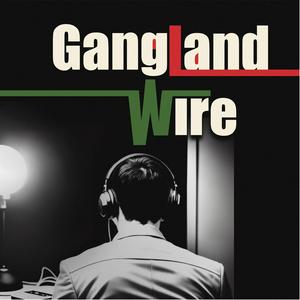
Hol dir die kostenlose radio.at App
- Sender und Podcasts favorisieren
- Streamen via Wifi oder Bluetooth
- Unterstützt Carplay & Android Auto
- viele weitere App Funktionen
Hol dir die kostenlose radio.at App
- Sender und Podcasts favorisieren
- Streamen via Wifi oder Bluetooth
- Unterstützt Carplay & Android Auto
- viele weitere App Funktionen


Gangland Wire
Code scannen,
App laden,
loshören.
App laden,
loshören.












